UNIT 3 SUMMER AND WINTER SPORTS WORLD SPORTS
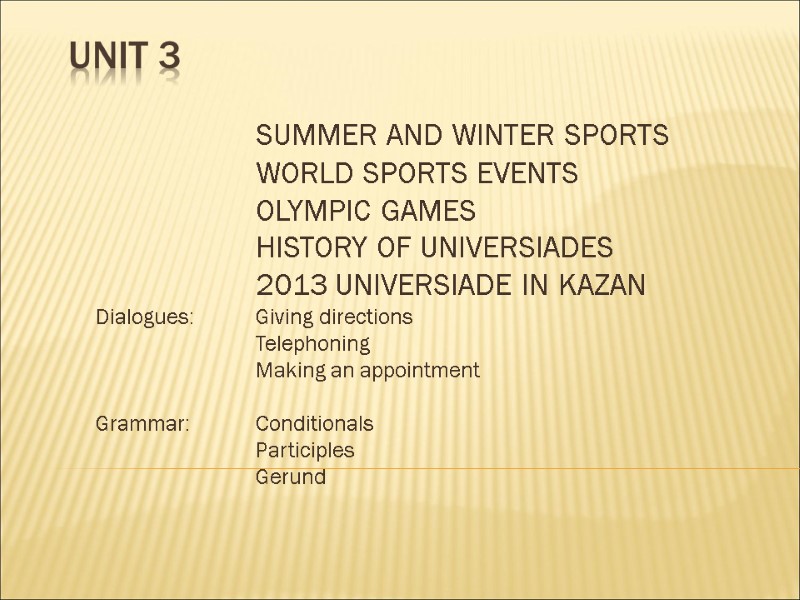
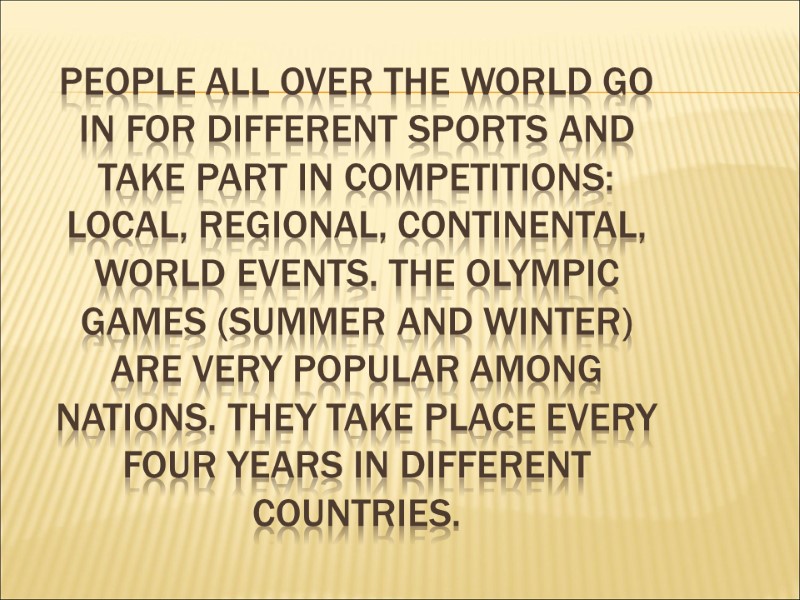
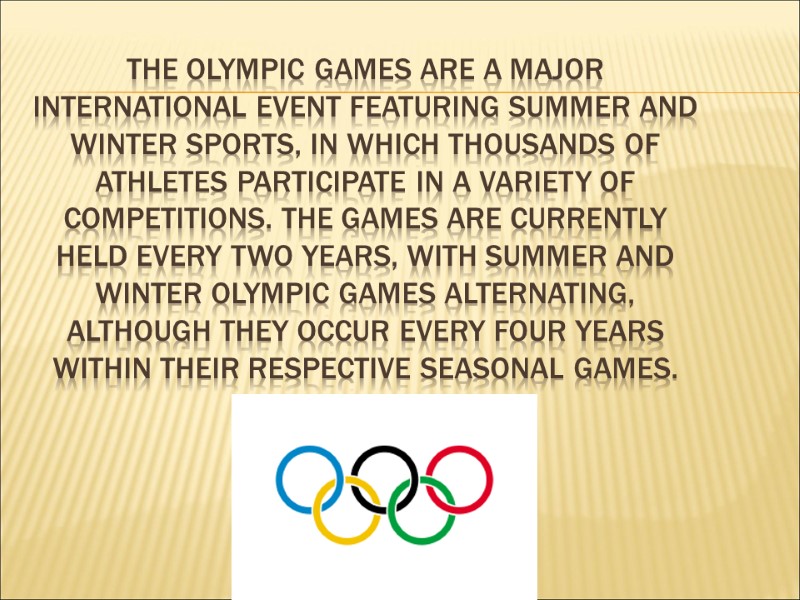
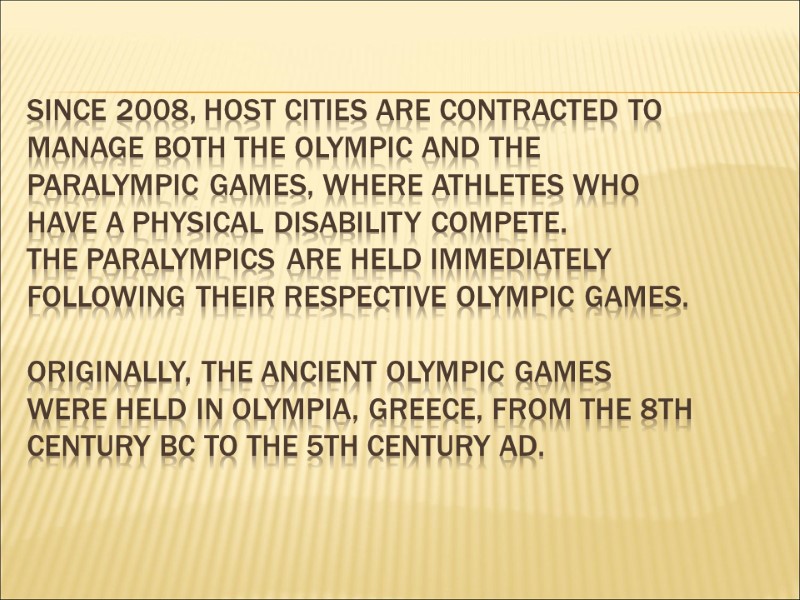
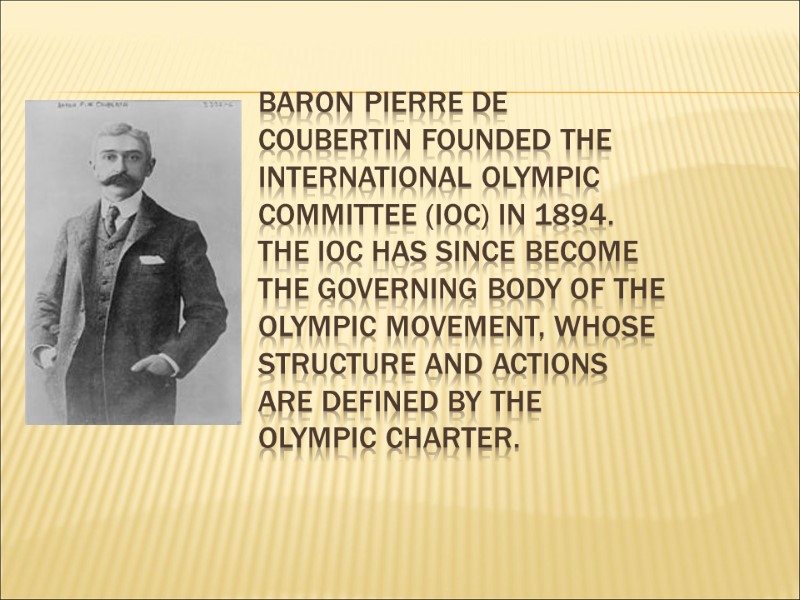
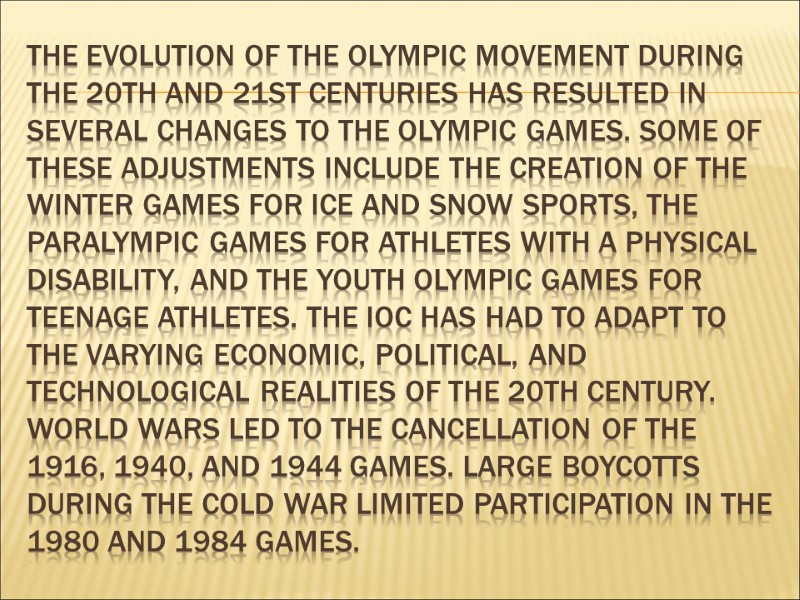
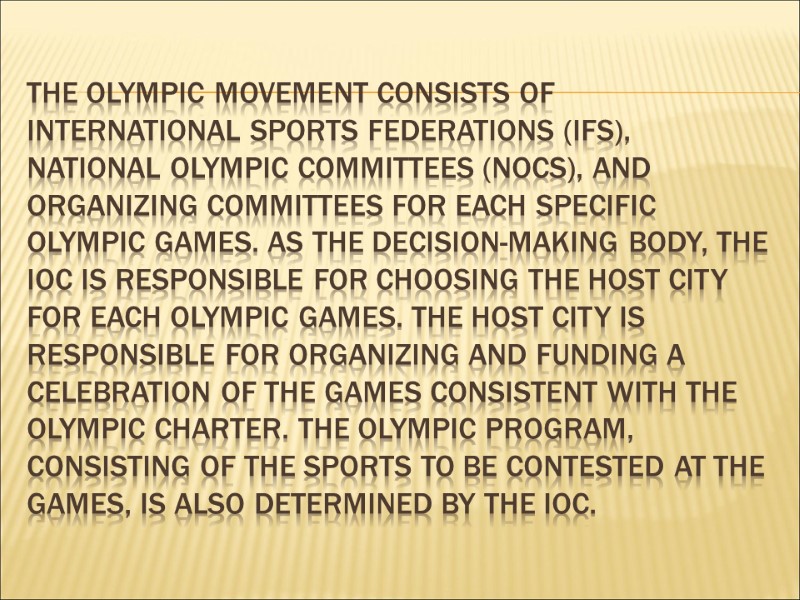
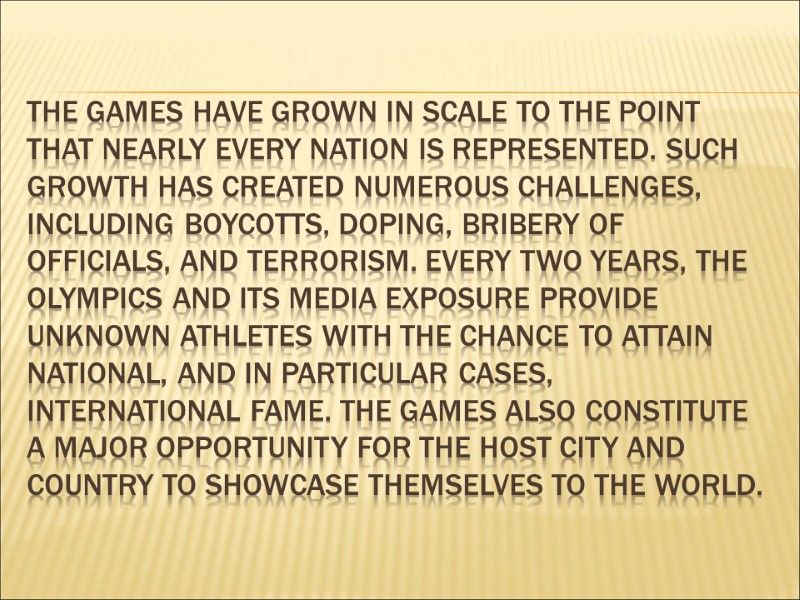
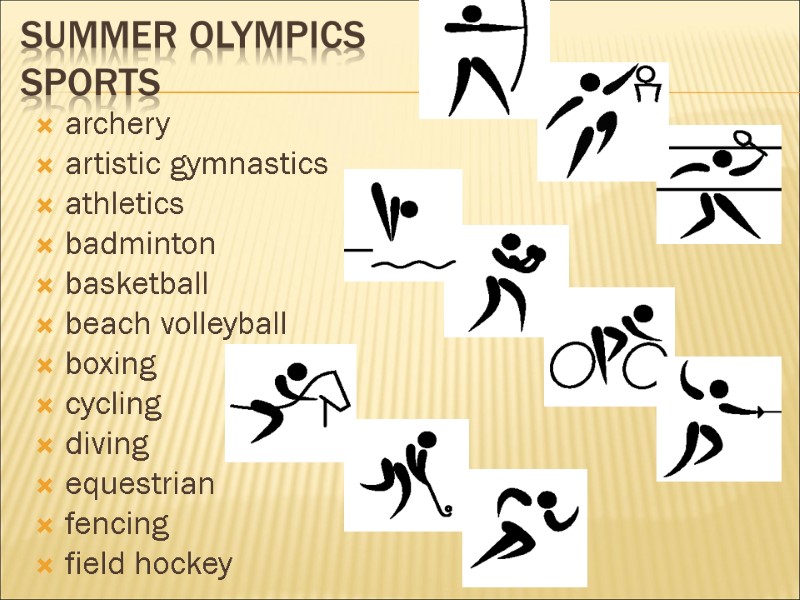
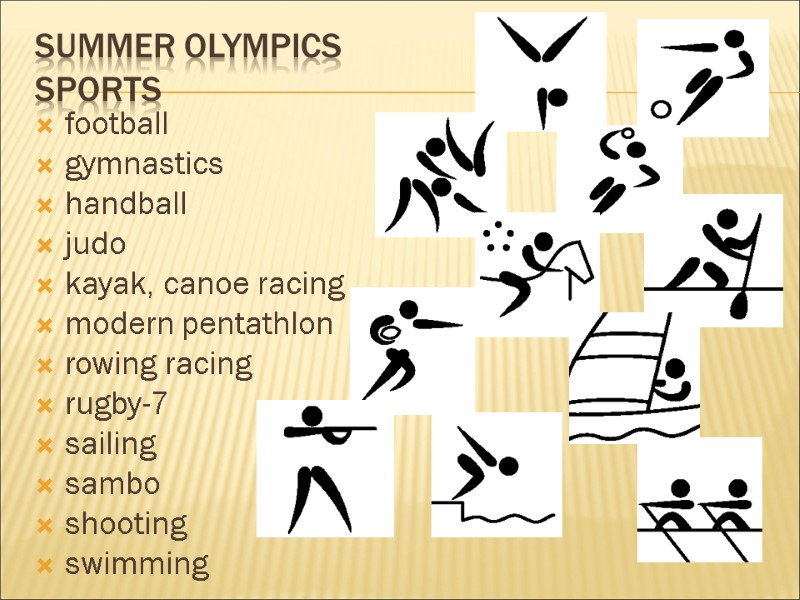
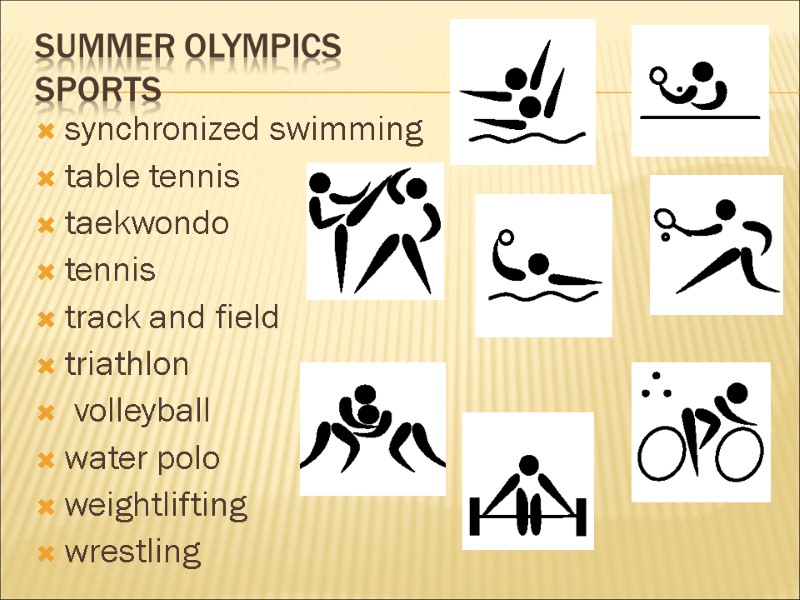
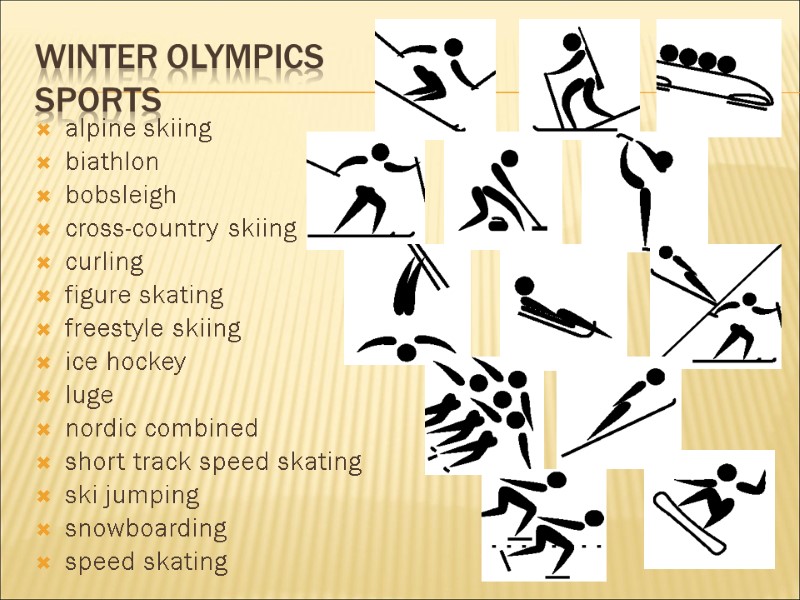
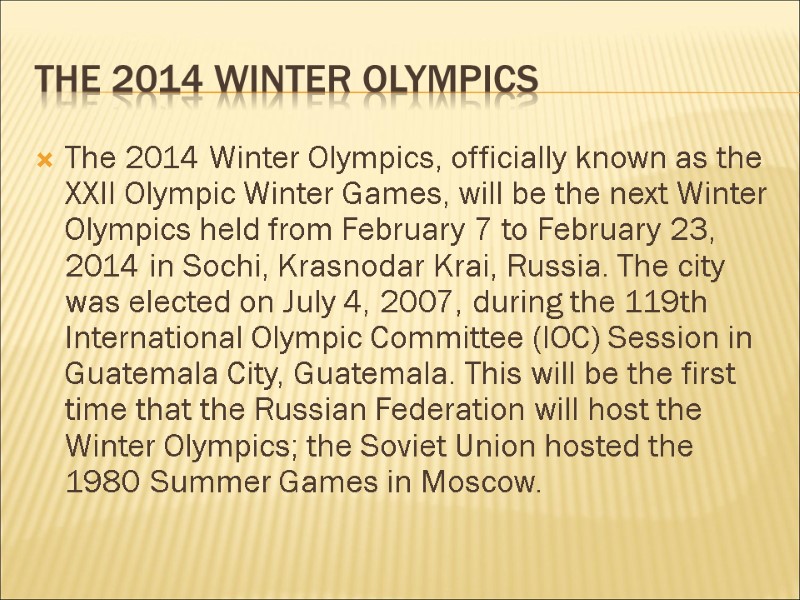
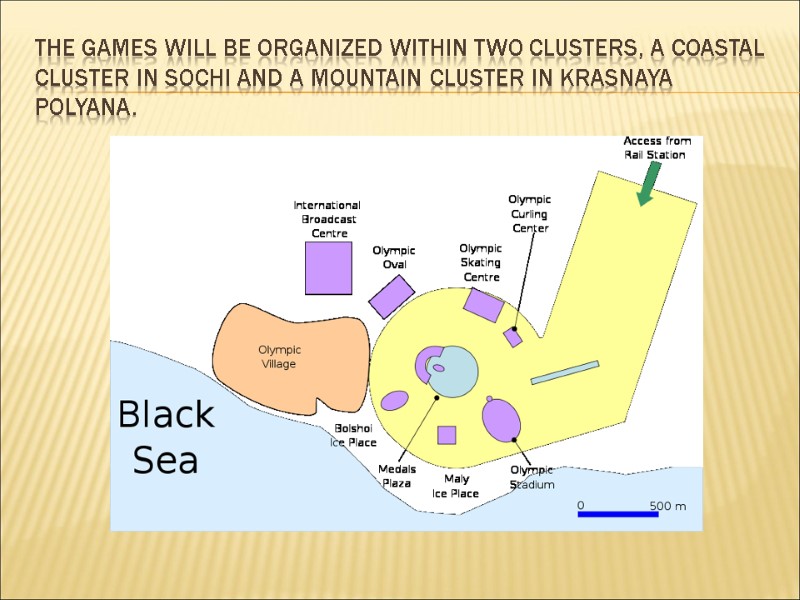
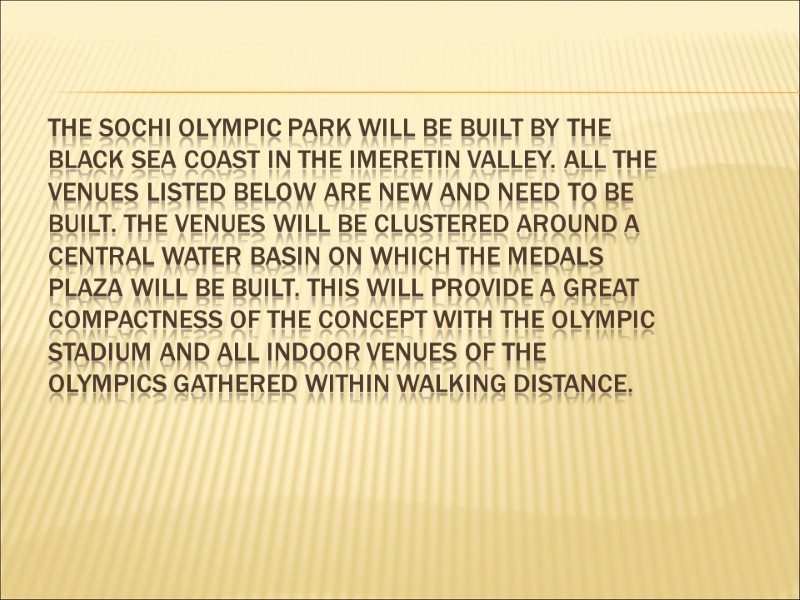
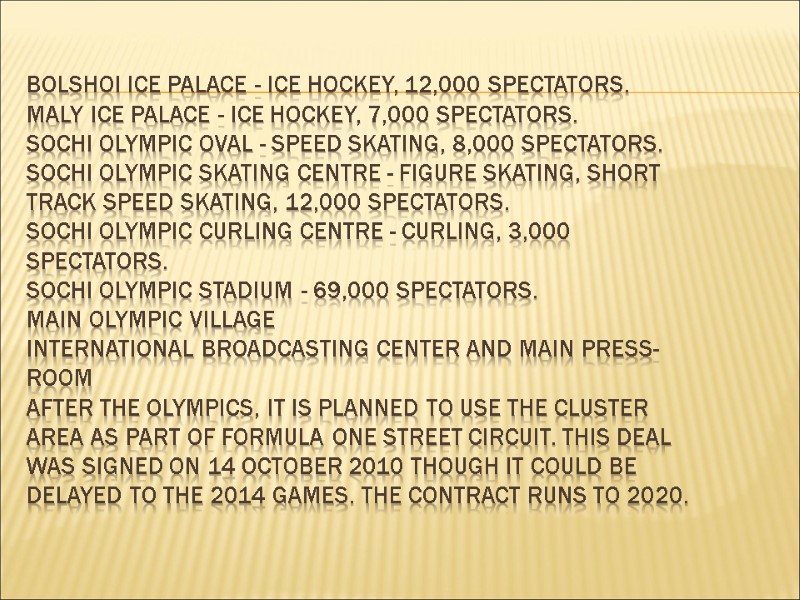
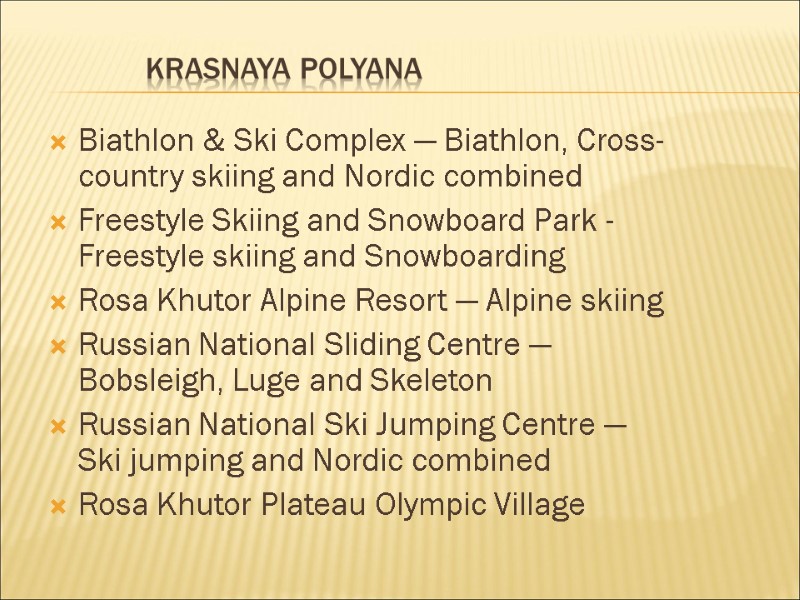
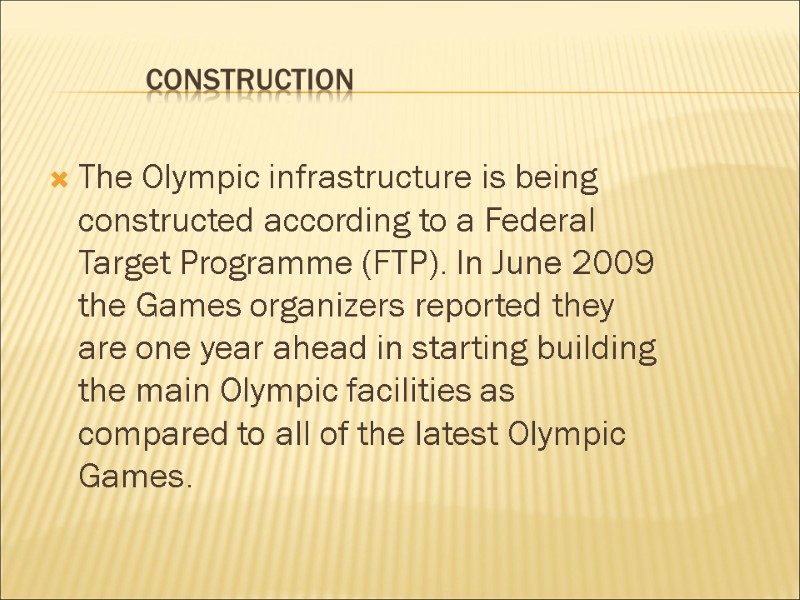
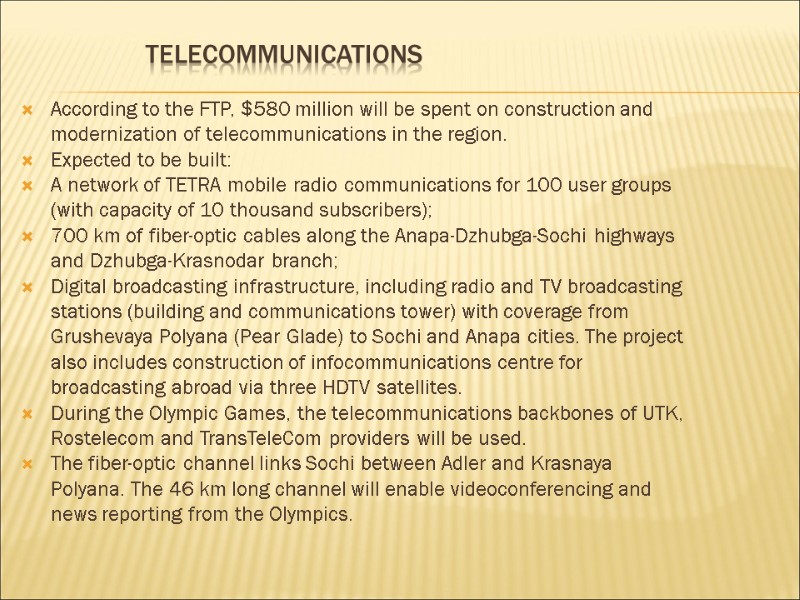
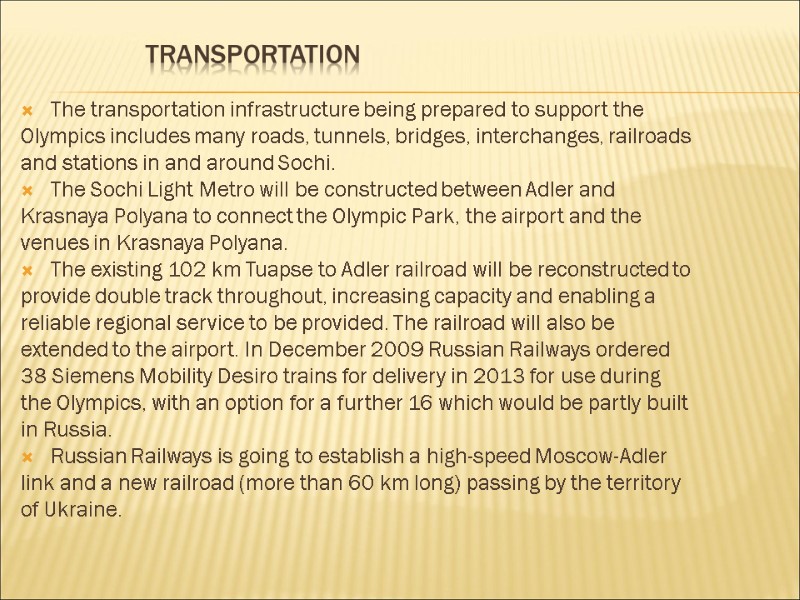
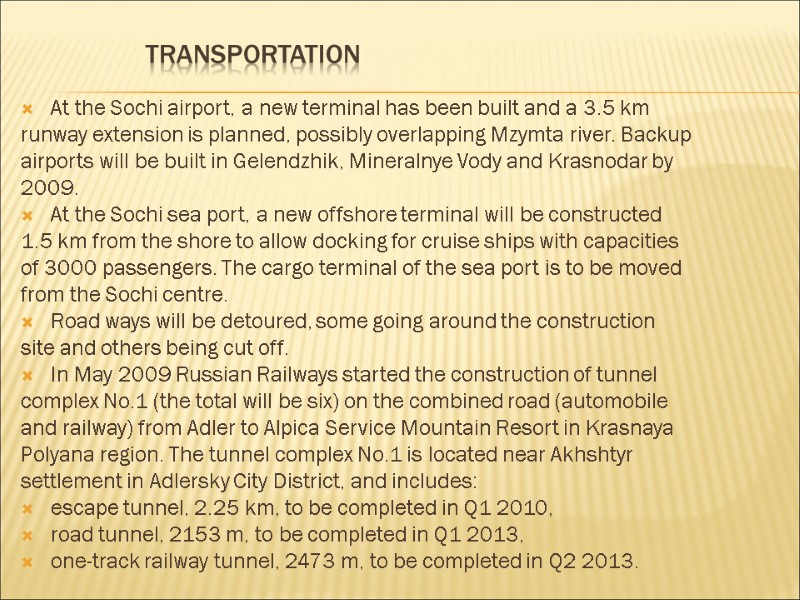
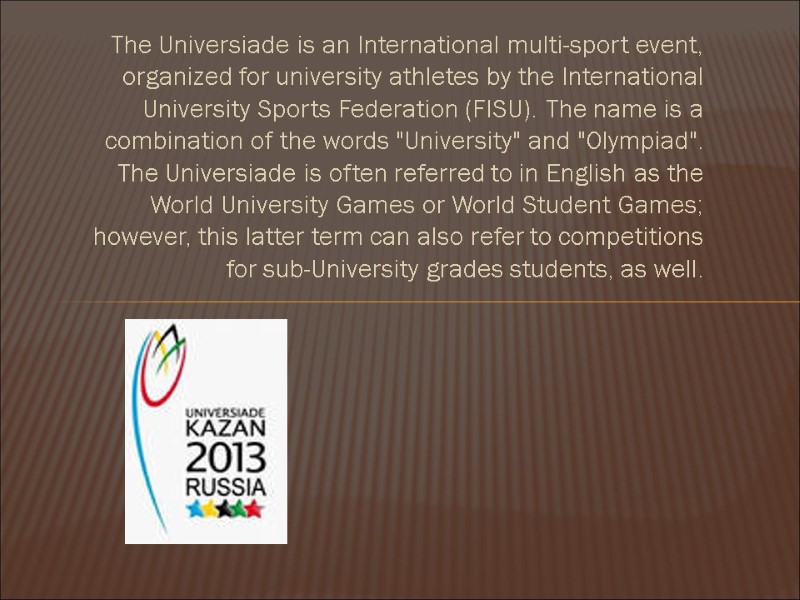
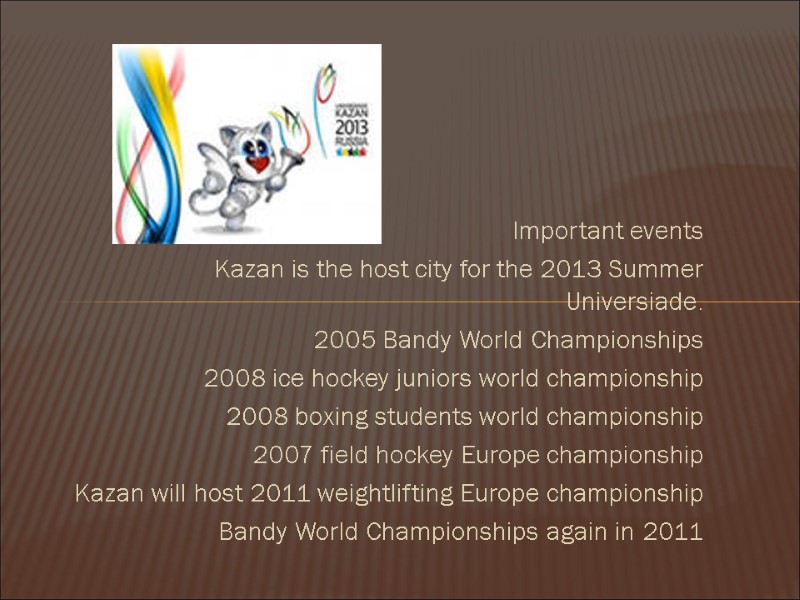
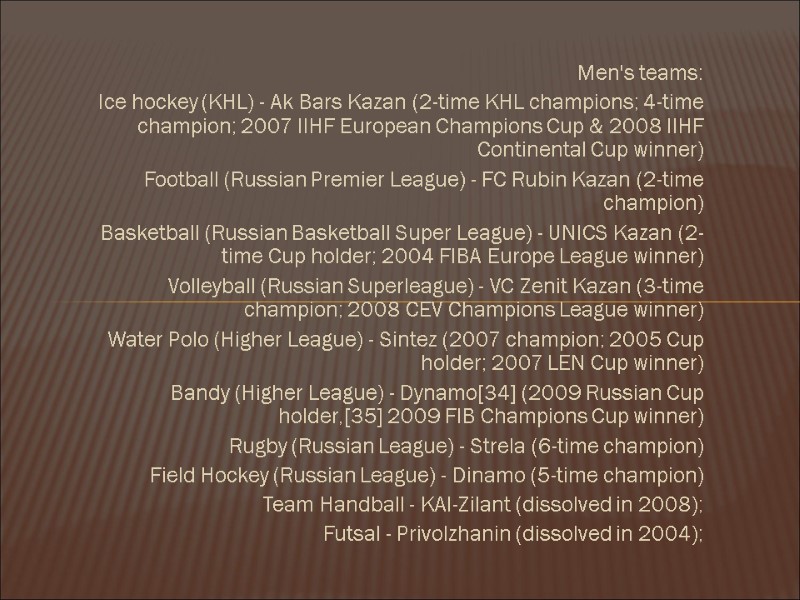
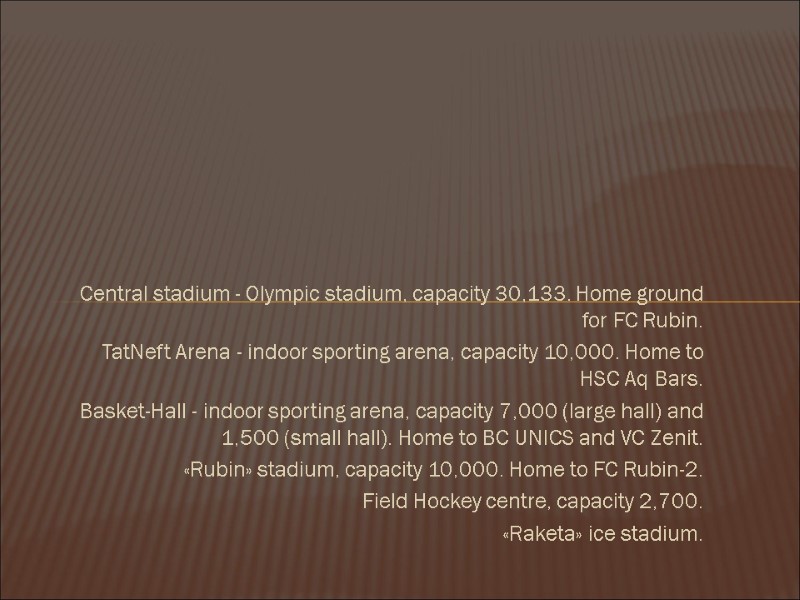
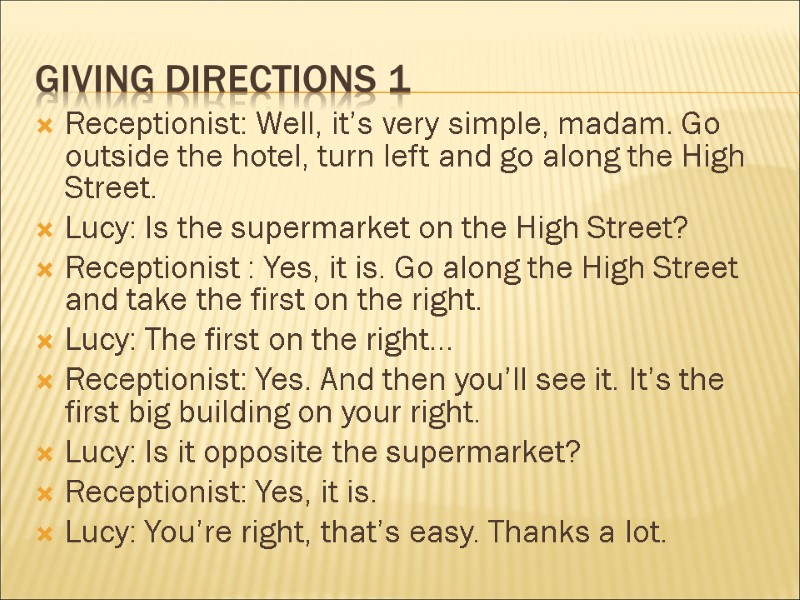
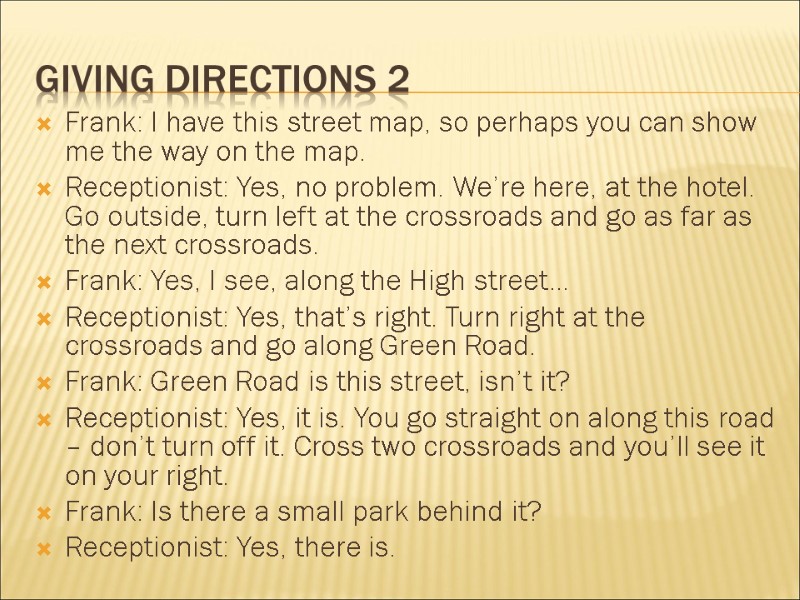
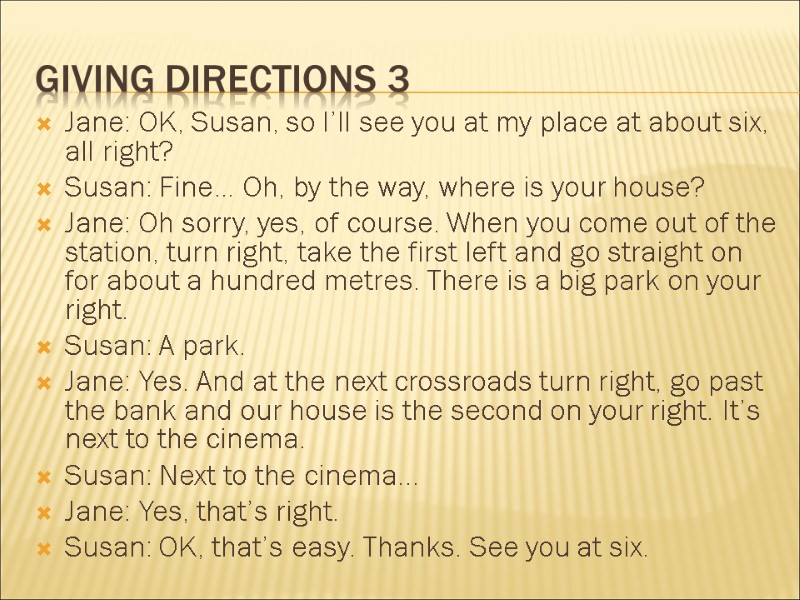
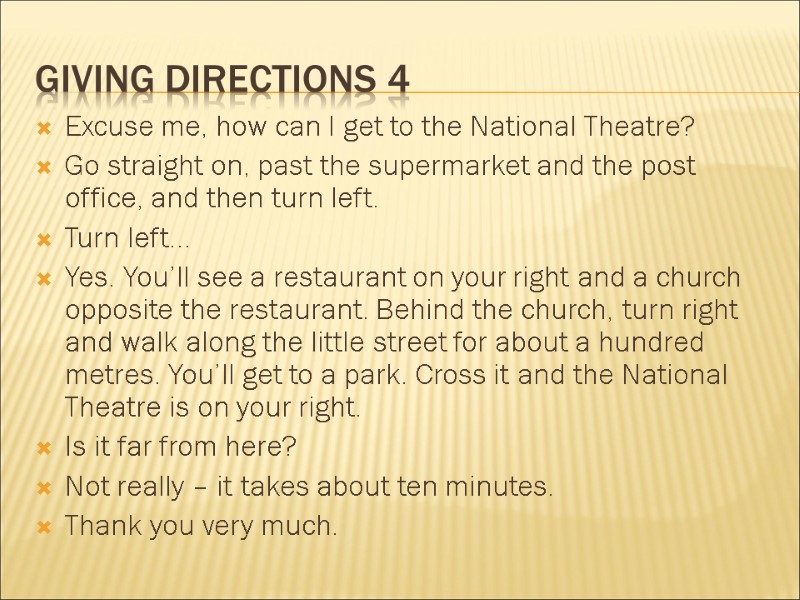
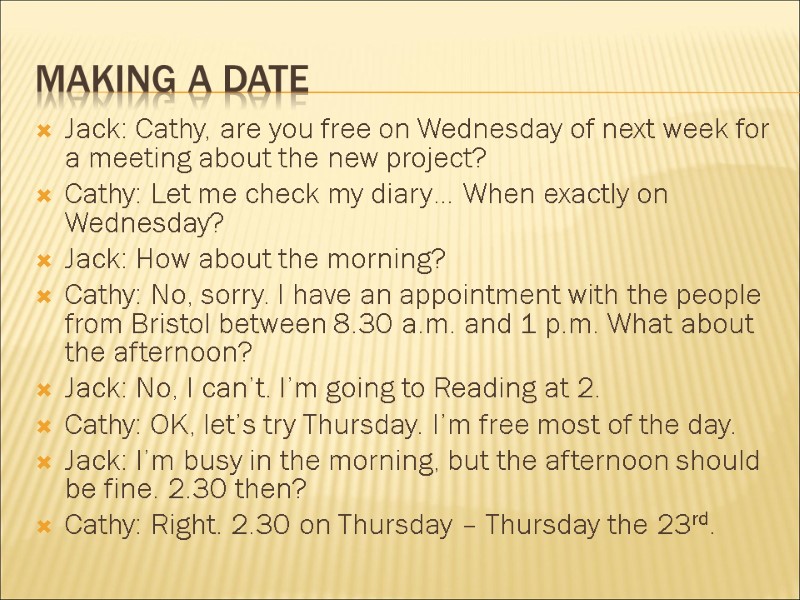
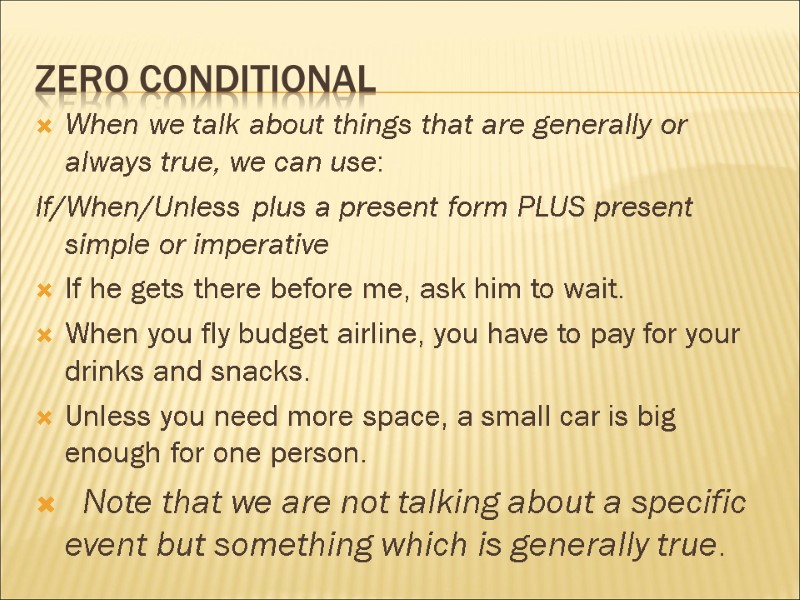
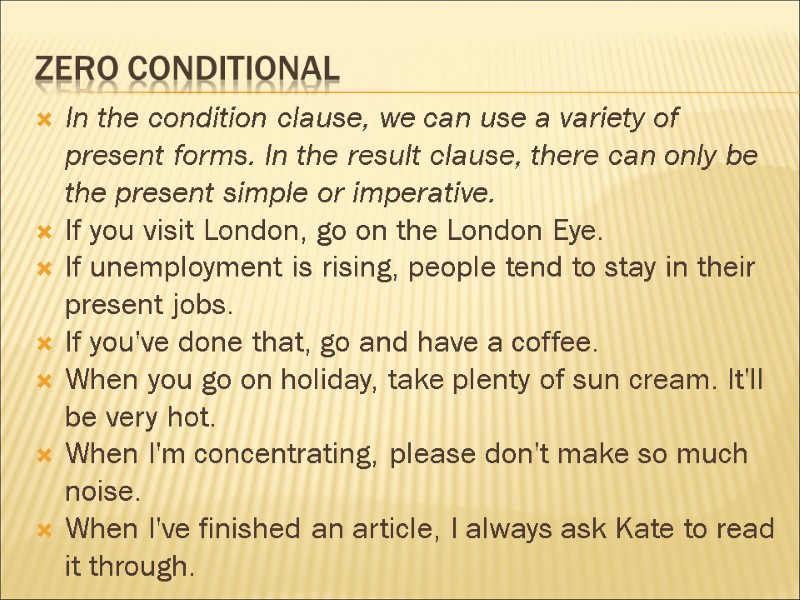
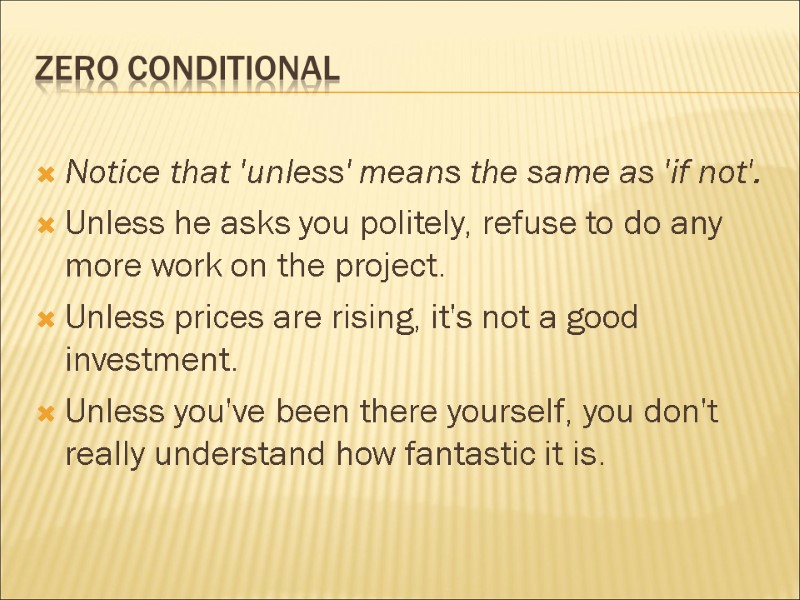
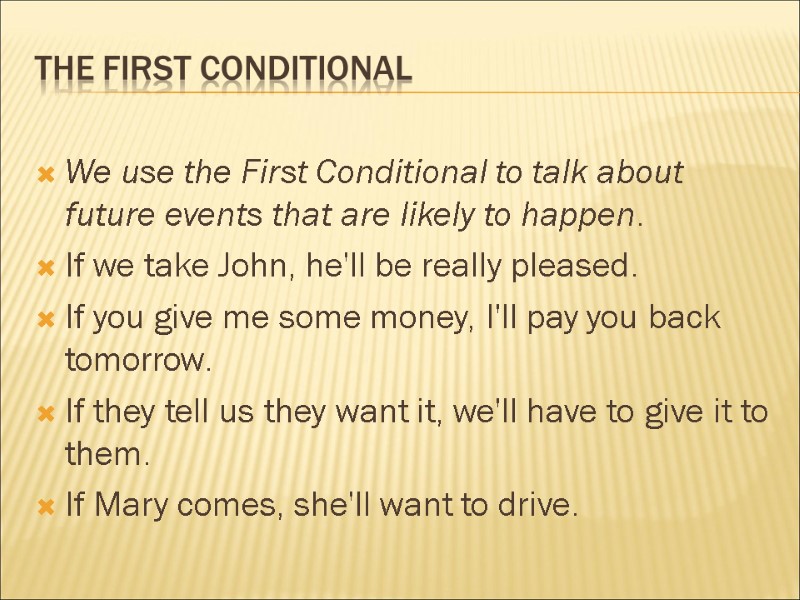
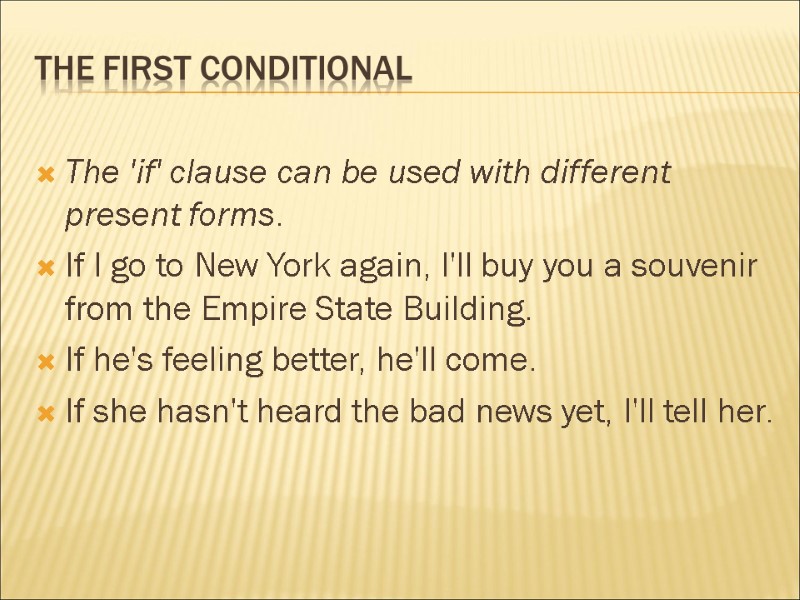
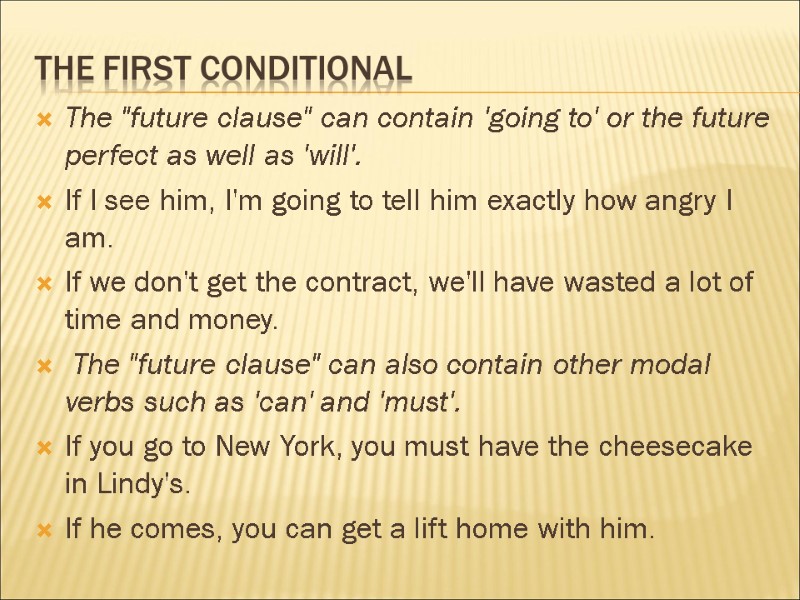
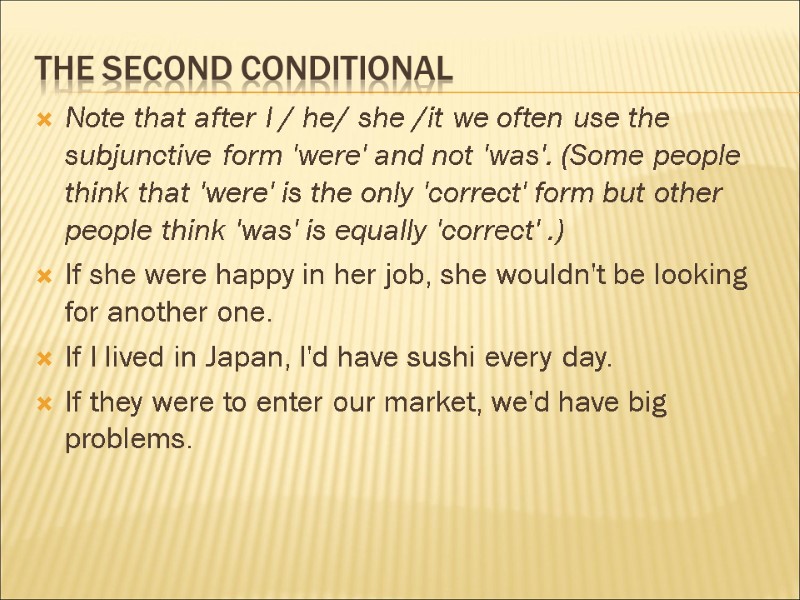
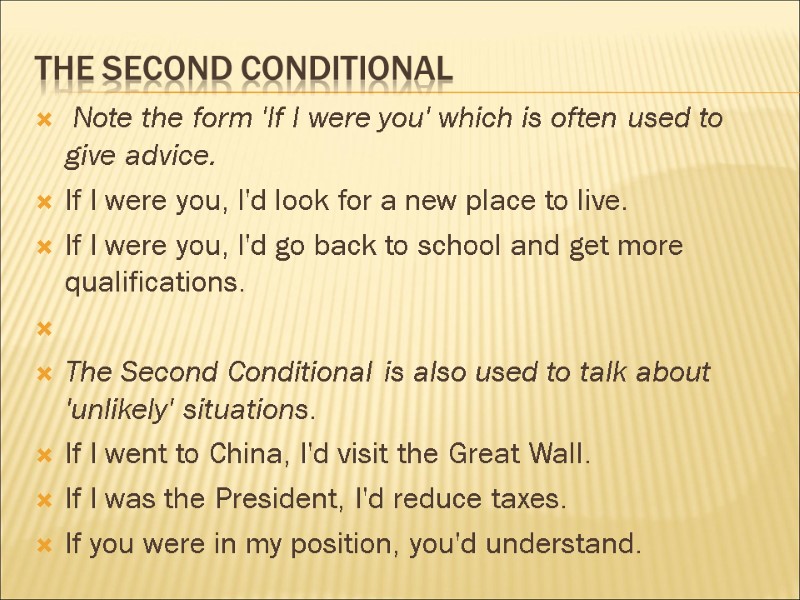
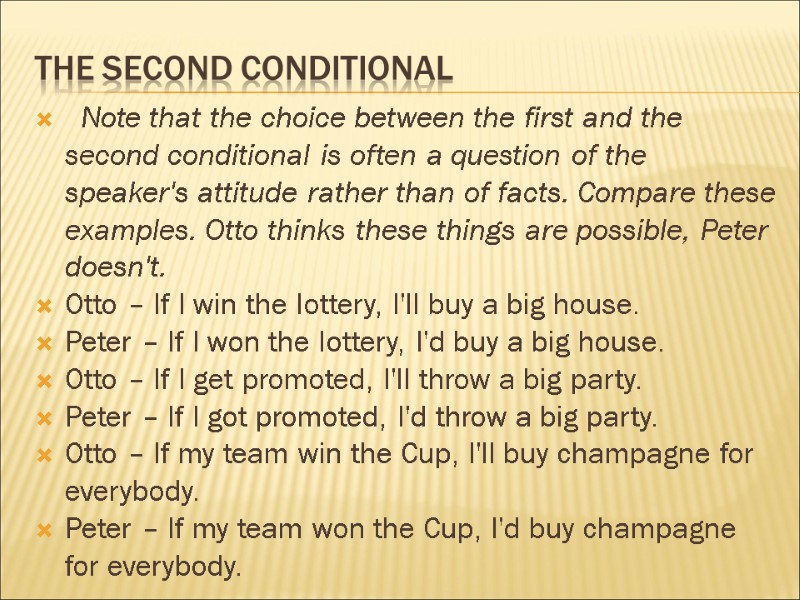
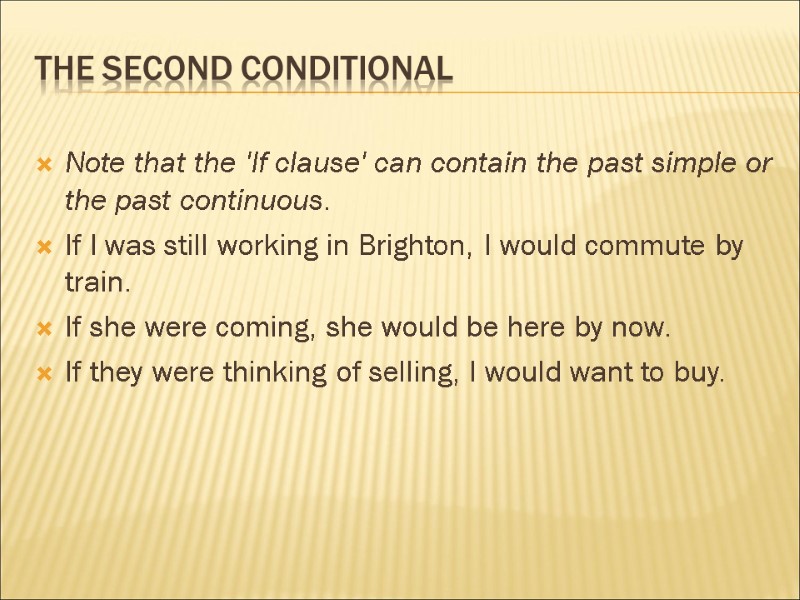
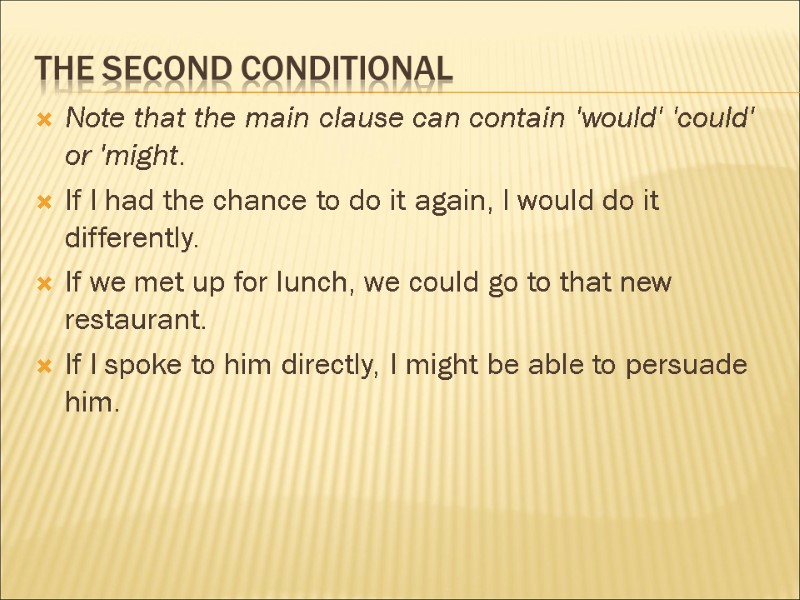
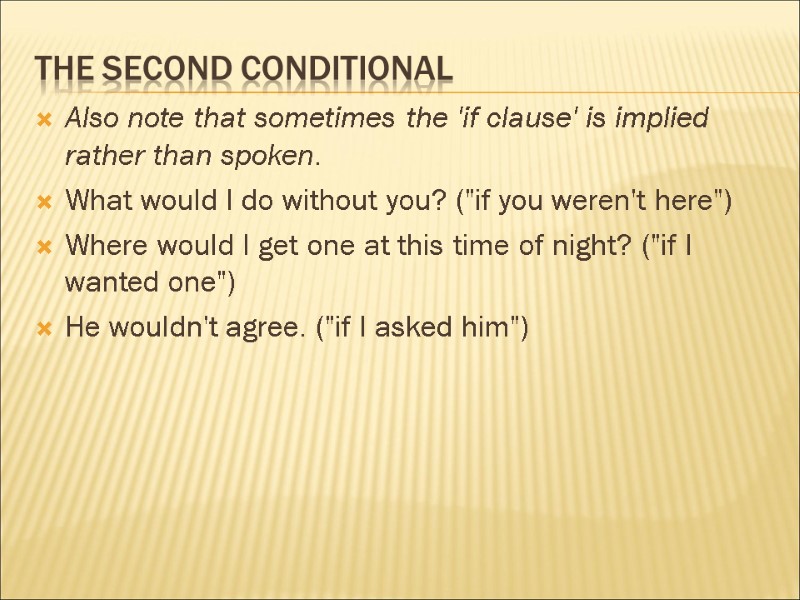
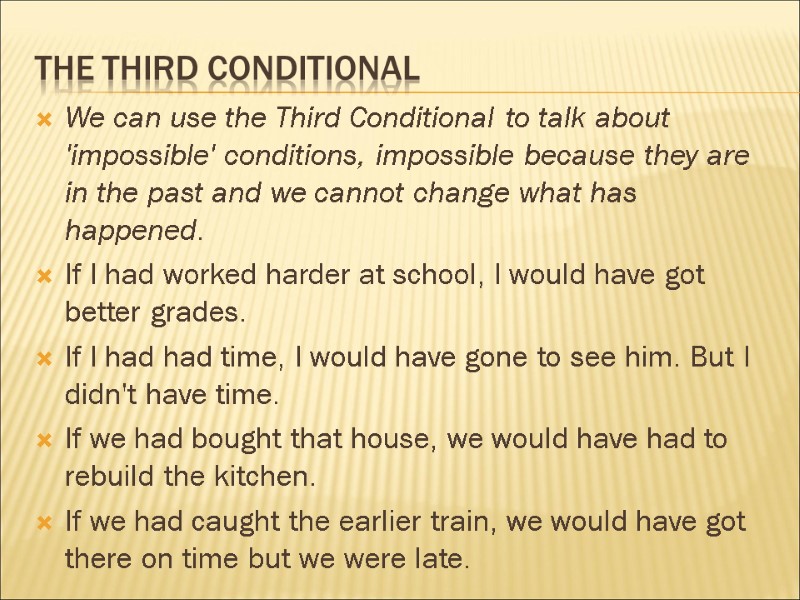
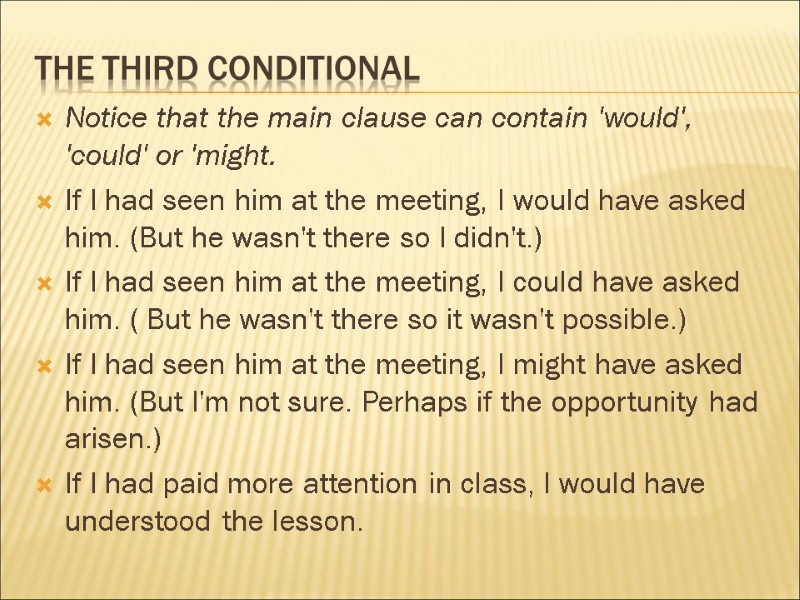
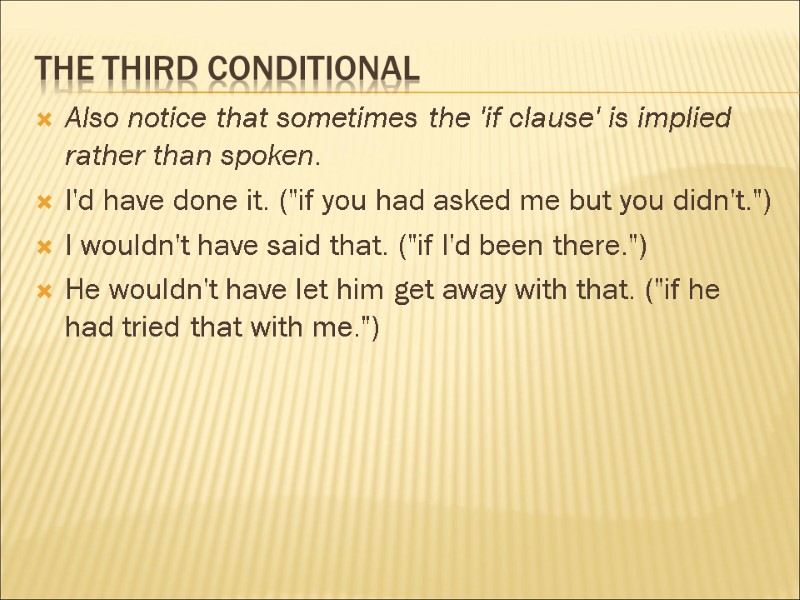
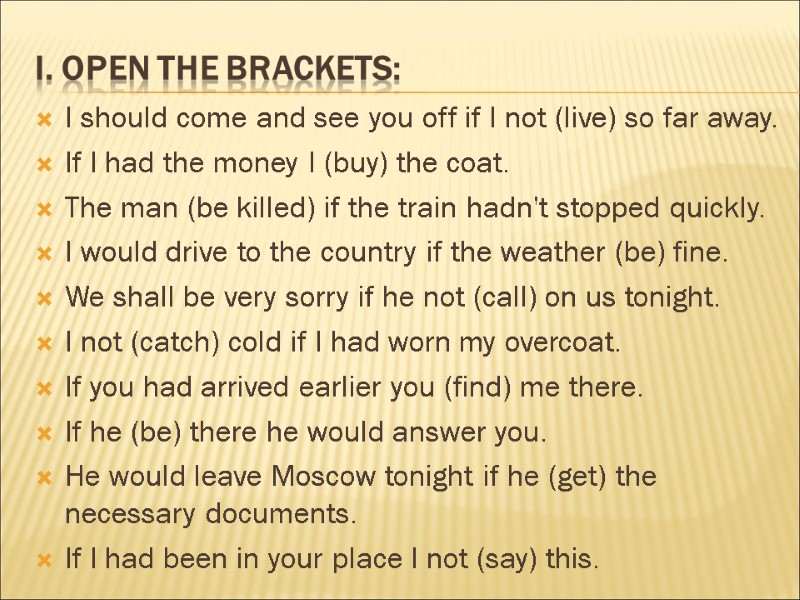
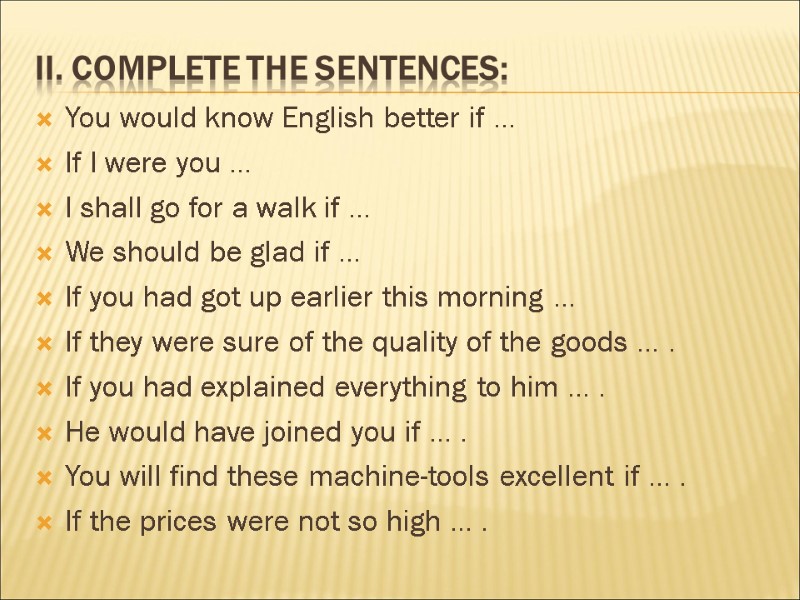
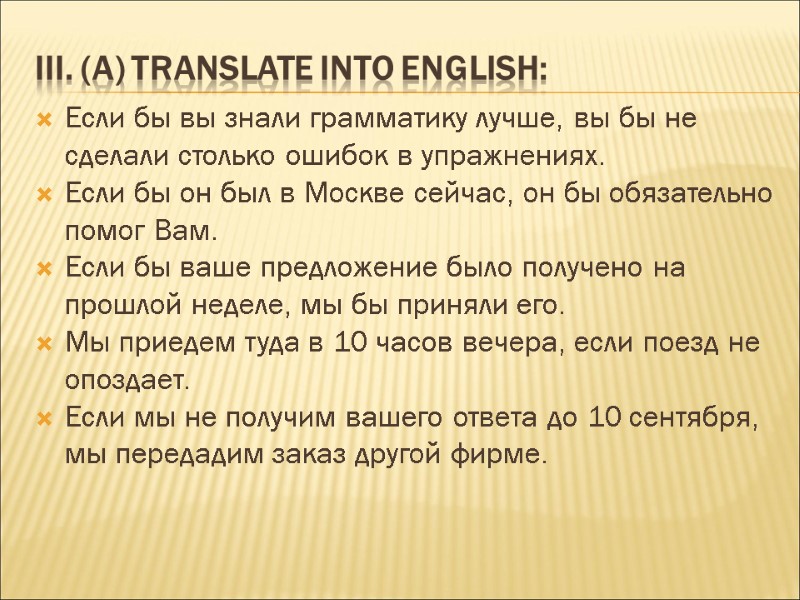
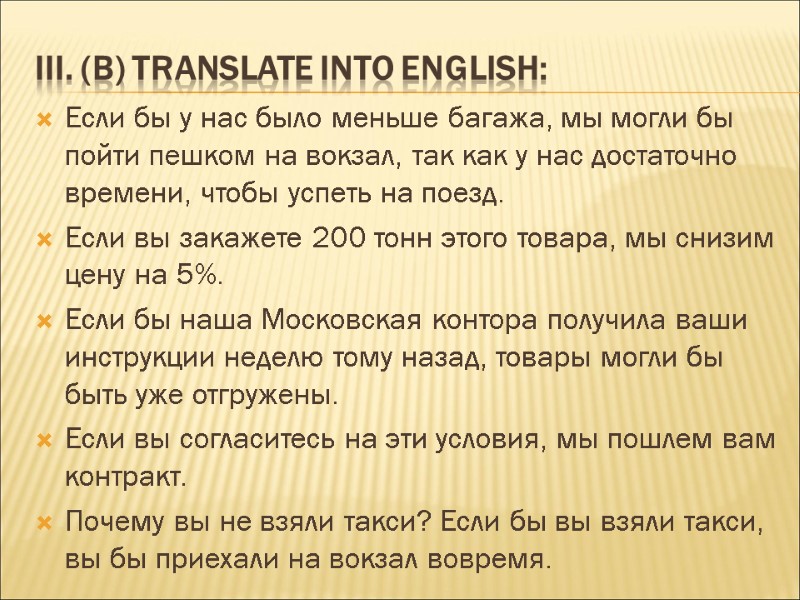
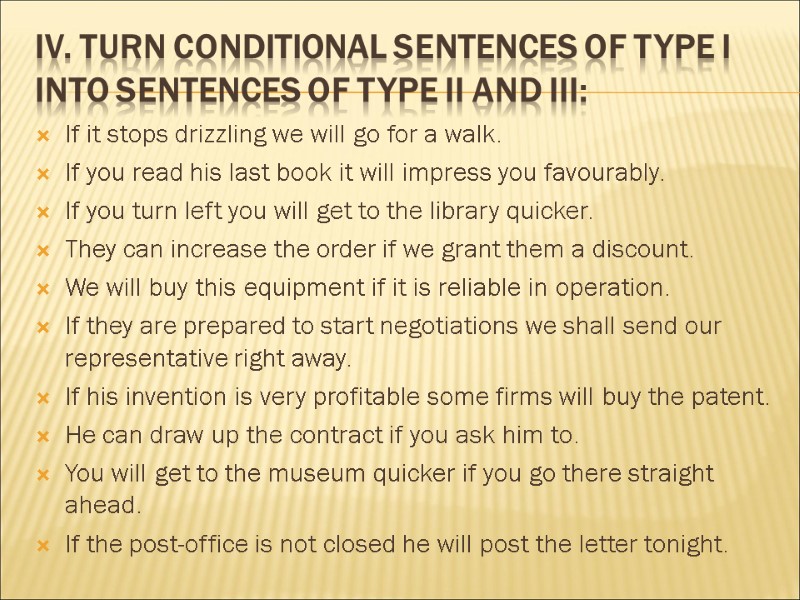
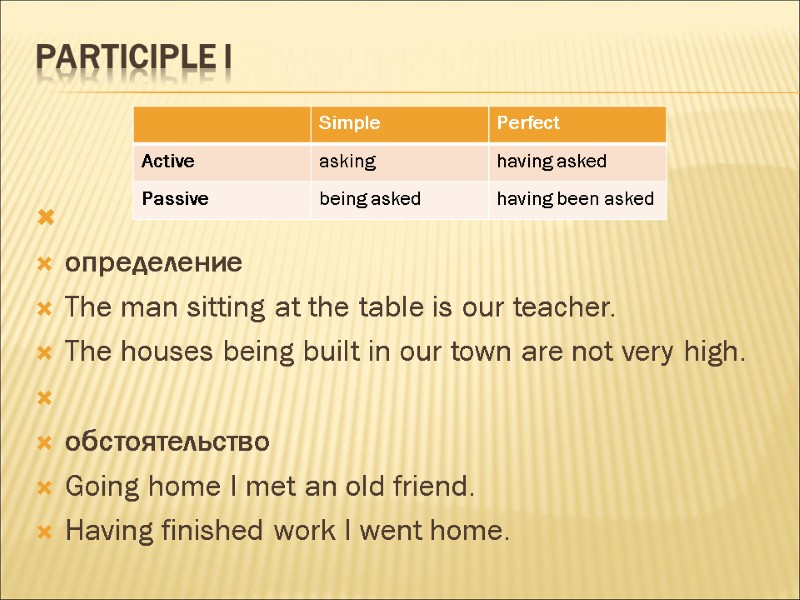
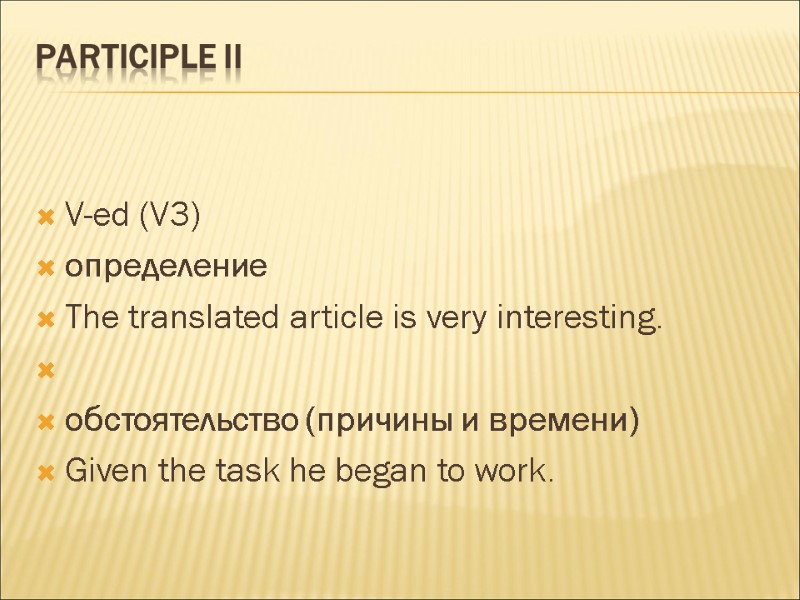
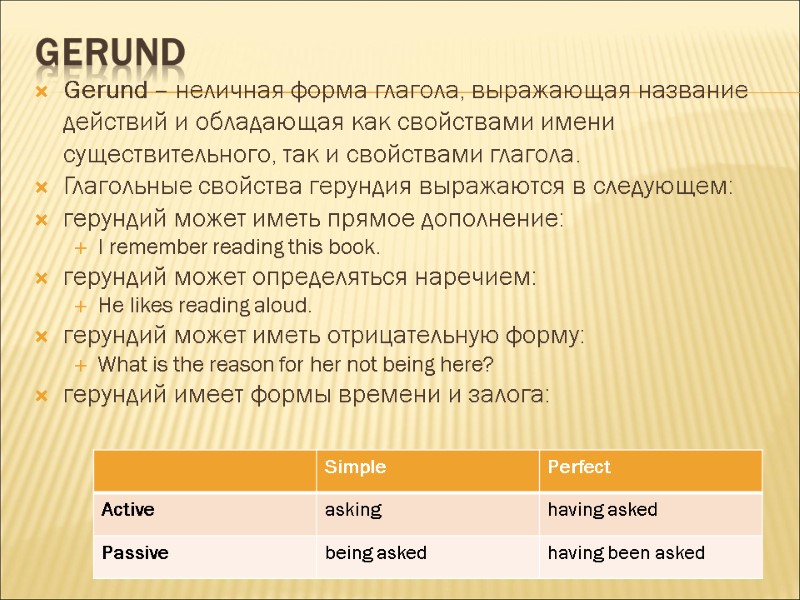
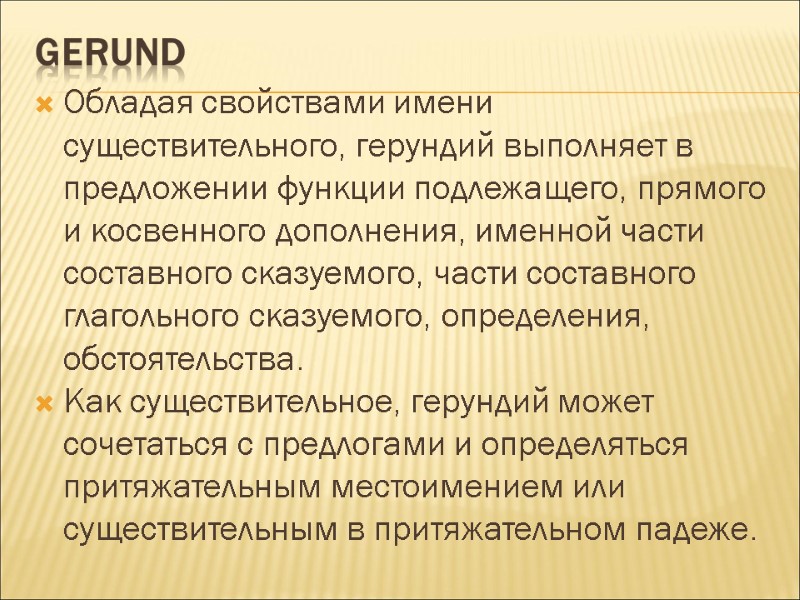
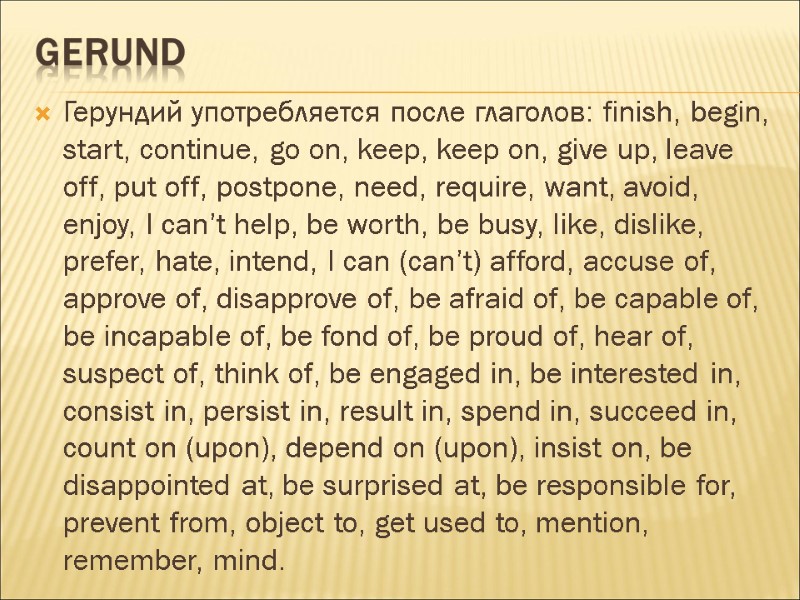
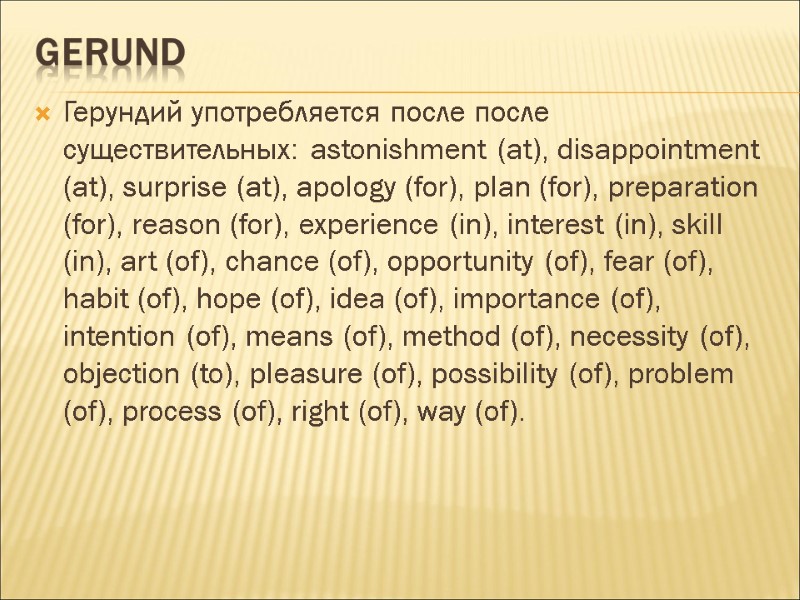
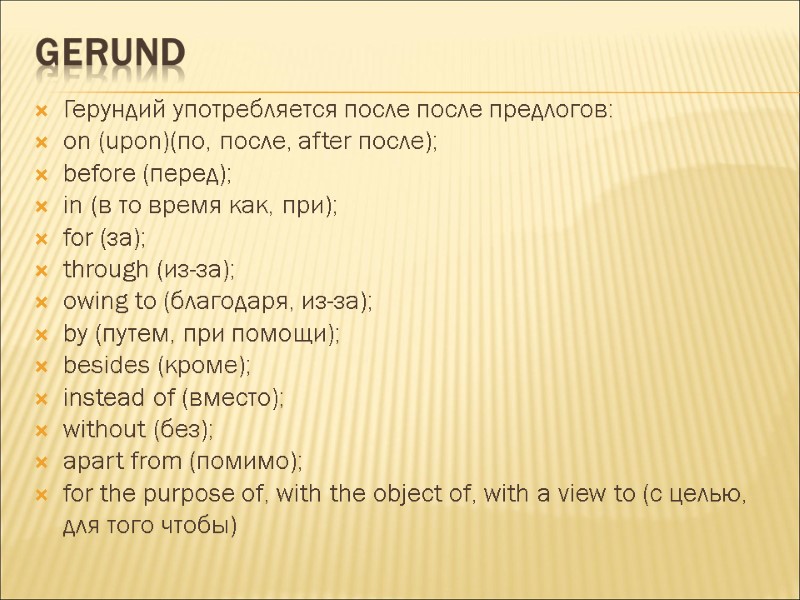
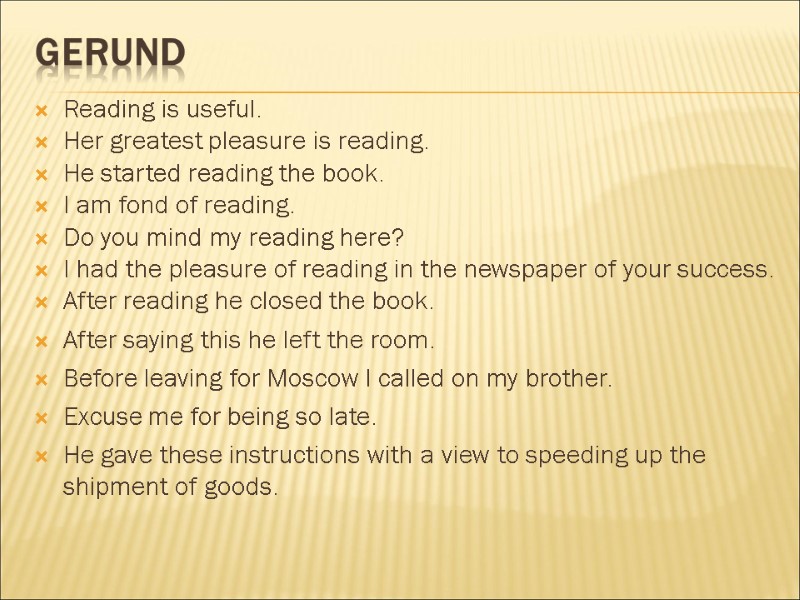
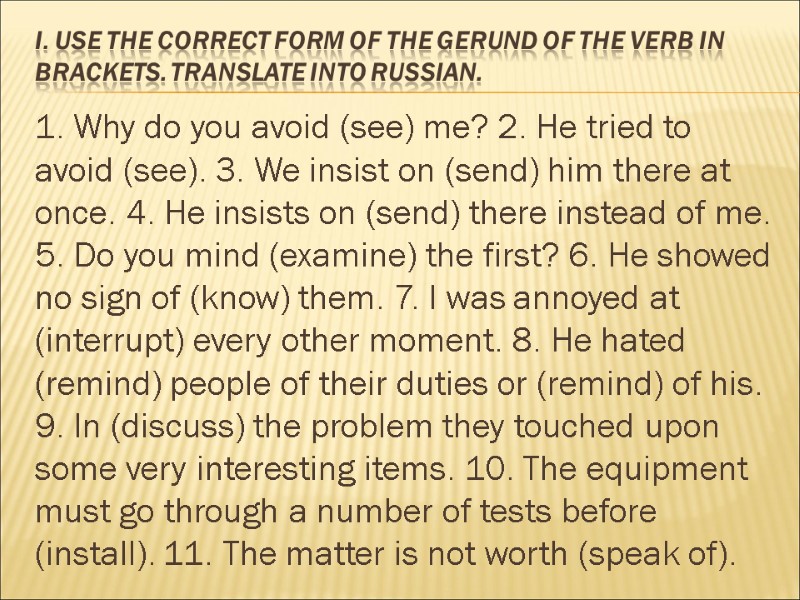
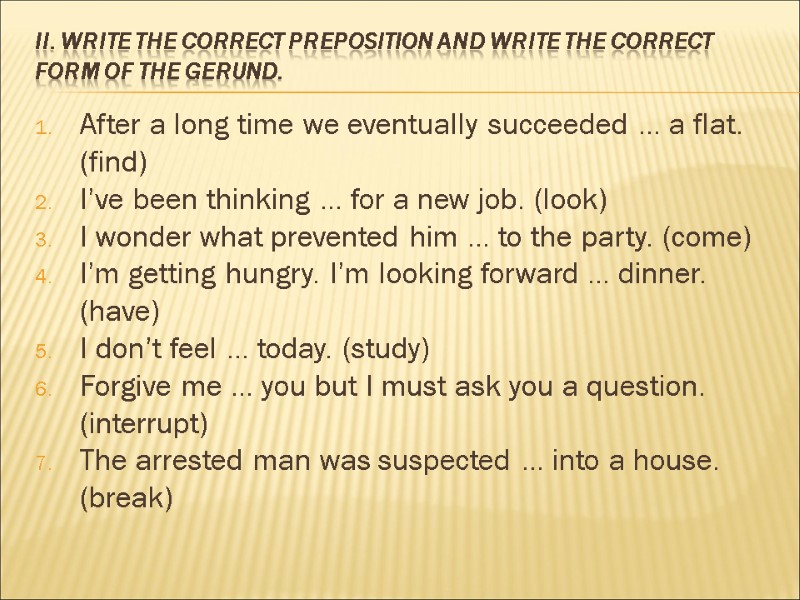
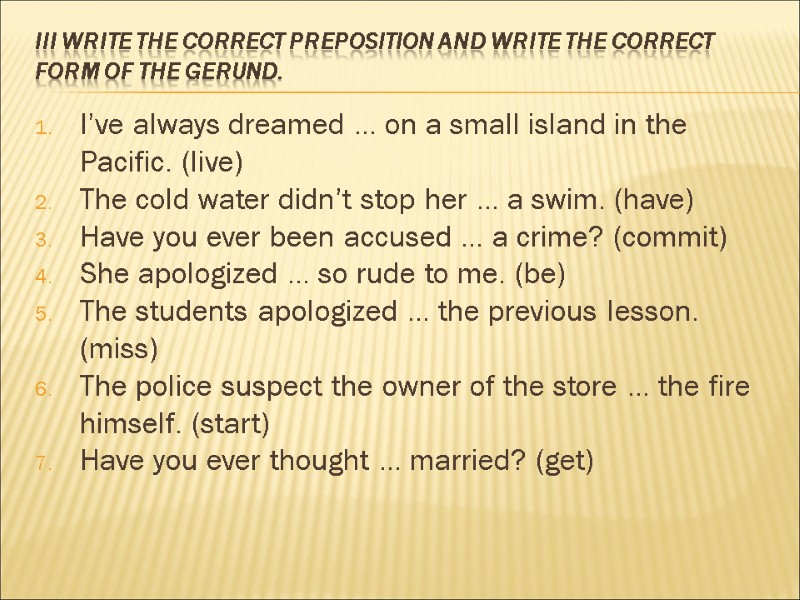
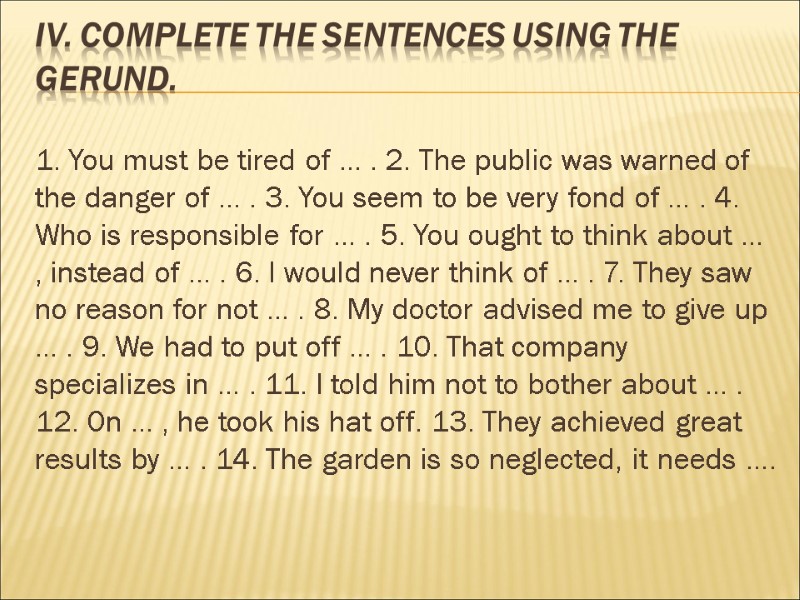
15878-unit_3_sports_1.ppt
- Количество слайдов: 62
 UNIT 3 SUMMER AND WINTER SPORTS WORLD SPORTS EVENTS OLYMPIC GAMES HISTORY OF UNIVERSIADES 2013 UNIVERSIADE IN KAZAN Dialogues: Giving directions Telephoning Making an appointment Grammar: Conditionals Participles Gerund
UNIT 3 SUMMER AND WINTER SPORTS WORLD SPORTS EVENTS OLYMPIC GAMES HISTORY OF UNIVERSIADES 2013 UNIVERSIADE IN KAZAN Dialogues: Giving directions Telephoning Making an appointment Grammar: Conditionals Participles Gerund
 People all over the world go in for different sports and take part in competitions: local, regional, continental, world events. The Olympic games (summer and winter) are very popular among nations. They take place every four years in different countries.
People all over the world go in for different sports and take part in competitions: local, regional, continental, world events. The Olympic games (summer and winter) are very popular among nations. They take place every four years in different countries.
 The Olympic Games are a major international event featuring summer and winter sports, in which thousands of athletes participate in a variety of competitions. The Games are currently held every two years, with Summer and Winter Olympic Games alternating, although they occur every four years within their respective seasonal games.
The Olympic Games are a major international event featuring summer and winter sports, in which thousands of athletes participate in a variety of competitions. The Games are currently held every two years, with Summer and Winter Olympic Games alternating, although they occur every four years within their respective seasonal games.
 Since 2008, host cities are contracted to manage both the Olympic and the Paralympic Games, where athletes who have a physical disability compete. The Paralympics are held immediately following their respective Olympic Games. Originally, the ancient Olympic Games were held in Olympia, Greece, from the 8th century BC to the 5th century AD.
Since 2008, host cities are contracted to manage both the Olympic and the Paralympic Games, where athletes who have a physical disability compete. The Paralympics are held immediately following their respective Olympic Games. Originally, the ancient Olympic Games were held in Olympia, Greece, from the 8th century BC to the 5th century AD.
 Baron Pierre de Coubertin founded the International Olympic Committee (IOC) in 1894. The IOC has since become the governing body of the Olympic Movement, whose structure and actions are defined by the Olympic Charter.
Baron Pierre de Coubertin founded the International Olympic Committee (IOC) in 1894. The IOC has since become the governing body of the Olympic Movement, whose structure and actions are defined by the Olympic Charter.
 The evolution of the Olympic Movement during the 20th and 21st centuries has resulted in several changes to the Olympic Games. Some of these adjustments include the creation of the Winter Games for ice and snow sports, the Paralympic Games for athletes with a physical disability, and the Youth Olympic Games for teenage athletes. The IOC has had to adapt to the varying economic, political, and technological realities of the 20th century. World Wars led to the cancellation of the 1916, 1940, and 1944 Games. Large boycotts during the Cold War limited participation in the 1980 and 1984 Games.
The evolution of the Olympic Movement during the 20th and 21st centuries has resulted in several changes to the Olympic Games. Some of these adjustments include the creation of the Winter Games for ice and snow sports, the Paralympic Games for athletes with a physical disability, and the Youth Olympic Games for teenage athletes. The IOC has had to adapt to the varying economic, political, and technological realities of the 20th century. World Wars led to the cancellation of the 1916, 1940, and 1944 Games. Large boycotts during the Cold War limited participation in the 1980 and 1984 Games.
 The Olympic Movement consists of international sports federations (IFs), National Olympic Committees (NOCs), and organizing committees for each specific Olympic Games. As the decision-making body, the IOC is responsible for choosing the host city for each Olympic Games. The host city is responsible for organizing and funding a celebration of the Games consistent with the Olympic Charter. The Olympic program, consisting of the sports to be contested at the Games, is also determined by the IOC.
The Olympic Movement consists of international sports federations (IFs), National Olympic Committees (NOCs), and organizing committees for each specific Olympic Games. As the decision-making body, the IOC is responsible for choosing the host city for each Olympic Games. The host city is responsible for organizing and funding a celebration of the Games consistent with the Olympic Charter. The Olympic program, consisting of the sports to be contested at the Games, is also determined by the IOC.
 The Games have grown in scale to the point that nearly every nation is represented. Such growth has created numerous challenges, including boycotts, doping, bribery of officials, and terrorism. Every two years, the Olympics and its media exposure provide unknown athletes with the chance to attain national, and in particular cases, international fame. The Games also constitute a major opportunity for the host city and country to showcase themselves to the world.
The Games have grown in scale to the point that nearly every nation is represented. Such growth has created numerous challenges, including boycotts, doping, bribery of officials, and terrorism. Every two years, the Olympics and its media exposure provide unknown athletes with the chance to attain national, and in particular cases, international fame. The Games also constitute a major opportunity for the host city and country to showcase themselves to the world.
 Summer olympics sports archery artistic gymnastics athletics badminton basketball beach volleyball boxing cycling diving equestrian fencing field hockey
Summer olympics sports archery artistic gymnastics athletics badminton basketball beach volleyball boxing cycling diving equestrian fencing field hockey
 Summer olympics sports football gymnastics handball judo kayak, canoe racing modern pentathlon rowing racing rugby-7 sailing sambo shooting swimming
Summer olympics sports football gymnastics handball judo kayak, canoe racing modern pentathlon rowing racing rugby-7 sailing sambo shooting swimming
 Summer olympics sports synchronized swimming table tennis taekwondo tennis track and field triathlon volleyball water polo weightlifting wrestling
Summer olympics sports synchronized swimming table tennis taekwondo tennis track and field triathlon volleyball water polo weightlifting wrestling
 winter olympics sports alpine skiing biathlon bobsleigh cross-country skiing curling figure skating freestyle skiing ice hockey luge nordic combined short track speed skating ski jumping snowboarding speed skating
winter olympics sports alpine skiing biathlon bobsleigh cross-country skiing curling figure skating freestyle skiing ice hockey luge nordic combined short track speed skating ski jumping snowboarding speed skating
 The 2014 Winter Olympics The 2014 Winter Olympics, officially known as the XXII Olympic Winter Games, will be the next Winter Olympics held from February 7 to February 23, 2014 in Sochi, Krasnodar Krai, Russia. The city was elected on July 4, 2007, during the 119th International Olympic Committee (IOC) Session in Guatemala City, Guatemala. This will be the first time that the Russian Federation will host the Winter Olympics; the Soviet Union hosted the 1980 Summer Games in Moscow.
The 2014 Winter Olympics The 2014 Winter Olympics, officially known as the XXII Olympic Winter Games, will be the next Winter Olympics held from February 7 to February 23, 2014 in Sochi, Krasnodar Krai, Russia. The city was elected on July 4, 2007, during the 119th International Olympic Committee (IOC) Session in Guatemala City, Guatemala. This will be the first time that the Russian Federation will host the Winter Olympics; the Soviet Union hosted the 1980 Summer Games in Moscow.
 The Games will be organized within two clusters, a coastal cluster in Sochi and a mountain cluster in Krasnaya Polyana.
The Games will be organized within two clusters, a coastal cluster in Sochi and a mountain cluster in Krasnaya Polyana.
 The Sochi Olympic Park will be built by the Black Sea coast in the Imeretin Valley. All the venues listed below are new and need to be built. The venues will be clustered around a central water basin on which the Medals Plaza will be built. This will provide a great compactness of the concept with the Olympic Stadium and all indoor venues of the Olympics gathered within walking distance.
The Sochi Olympic Park will be built by the Black Sea coast in the Imeretin Valley. All the venues listed below are new and need to be built. The venues will be clustered around a central water basin on which the Medals Plaza will be built. This will provide a great compactness of the concept with the Olympic Stadium and all indoor venues of the Olympics gathered within walking distance.
 Bolshoi Ice Palace - ice hockey, 12,000 spectators. Maly Ice Palace - ice hockey, 7,000 spectators. Sochi Olympic Oval - speed skating, 8,000 spectators. Sochi Olympic Skating Centre - figure skating, short track speed skating, 12,000 spectators. Sochi Olympic Curling Centre - curling, 3,000 spectators. Sochi Olympic Stadium - 69,000 spectators. Main Olympic village International broadcasting center and main press-room After the Olympics, it is planned to use the cluster area as part of Formula One street circuit. This deal was signed on 14 October 2010 though it could be delayed to the 2014 Games. The contract runs to 2020.
Bolshoi Ice Palace - ice hockey, 12,000 spectators. Maly Ice Palace - ice hockey, 7,000 spectators. Sochi Olympic Oval - speed skating, 8,000 spectators. Sochi Olympic Skating Centre - figure skating, short track speed skating, 12,000 spectators. Sochi Olympic Curling Centre - curling, 3,000 spectators. Sochi Olympic Stadium - 69,000 spectators. Main Olympic village International broadcasting center and main press-room After the Olympics, it is planned to use the cluster area as part of Formula One street circuit. This deal was signed on 14 October 2010 though it could be delayed to the 2014 Games. The contract runs to 2020.
 Krasnaya Polyana Biathlon & Ski Complex — Biathlon, Cross-country skiing and Nordic combined Freestyle Skiing and Snowboard Park - Freestyle skiing and Snowboarding Rosa Khutor Alpine Resort — Alpine skiing Russian National Sliding Centre — Bobsleigh, Luge and Skeleton Russian National Ski Jumping Centre — Ski jumping and Nordic combined Rosa Khutor Plateau Olympic Village
Krasnaya Polyana Biathlon & Ski Complex — Biathlon, Cross-country skiing and Nordic combined Freestyle Skiing and Snowboard Park - Freestyle skiing and Snowboarding Rosa Khutor Alpine Resort — Alpine skiing Russian National Sliding Centre — Bobsleigh, Luge and Skeleton Russian National Ski Jumping Centre — Ski jumping and Nordic combined Rosa Khutor Plateau Olympic Village
 Construction The Olympic infrastructure is being constructed according to a Federal Target Programme (FTP). In June 2009 the Games organizers reported they are one year ahead in starting building the main Olympic facilities as compared to all of the latest Olympic Games.
Construction The Olympic infrastructure is being constructed according to a Federal Target Programme (FTP). In June 2009 the Games organizers reported they are one year ahead in starting building the main Olympic facilities as compared to all of the latest Olympic Games.
 Telecommunications According to the FTP, $580 million will be spent on construction and modernization of telecommunications in the region. Expected to be built: A network of TETRA mobile radio communications for 100 user groups (with capacity of 10 thousand subscribers); 700 km of fiber-optic cables along the Anapa-Dzhubga-Sochi highways and Dzhubga-Krasnodar branch; Digital broadcasting infrastructure, including radio and TV broadcasting stations (building and communications tower) with coverage from Grushevaya Polyana (Pear Glade) to Sochi and Anapa cities. The project also includes construction of infocommunications centre for broadcasting abroad via three HDTV satellites. During the Olympic Games, the telecommunications backbones of UTK, Rostelecom and TransTeleCom providers will be used. The fiber-optic channel links Sochi between Adler and Krasnaya Polyana. The 46 km long channel will enable videoconferencing and news reporting from the Olympics.
Telecommunications According to the FTP, $580 million will be spent on construction and modernization of telecommunications in the region. Expected to be built: A network of TETRA mobile radio communications for 100 user groups (with capacity of 10 thousand subscribers); 700 km of fiber-optic cables along the Anapa-Dzhubga-Sochi highways and Dzhubga-Krasnodar branch; Digital broadcasting infrastructure, including radio and TV broadcasting stations (building and communications tower) with coverage from Grushevaya Polyana (Pear Glade) to Sochi and Anapa cities. The project also includes construction of infocommunications centre for broadcasting abroad via three HDTV satellites. During the Olympic Games, the telecommunications backbones of UTK, Rostelecom and TransTeleCom providers will be used. The fiber-optic channel links Sochi between Adler and Krasnaya Polyana. The 46 km long channel will enable videoconferencing and news reporting from the Olympics.
 Transportation The transportation infrastructure being prepared to support the Olympics includes many roads, tunnels, bridges, interchanges, railroads and stations in and around Sochi. The Sochi Light Metro will be constructed between Adler and Krasnaya Polyana to connect the Olympic Park, the airport and the venues in Krasnaya Polyana. The existing 102 km Tuapse to Adler railroad will be reconstructed to provide double track throughout, increasing capacity and enabling a reliable regional service to be provided. The railroad will also be extended to the airport. In December 2009 Russian Railways ordered 38 Siemens Mobility Desiro trains for delivery in 2013 for use during the Olympics, with an option for a further 16 which would be partly built in Russia. Russian Railways is going to establish a high-speed Moscow-Adler link and a new railroad (more than 60 km long) passing by the territory of Ukraine.
Transportation The transportation infrastructure being prepared to support the Olympics includes many roads, tunnels, bridges, interchanges, railroads and stations in and around Sochi. The Sochi Light Metro will be constructed between Adler and Krasnaya Polyana to connect the Olympic Park, the airport and the venues in Krasnaya Polyana. The existing 102 km Tuapse to Adler railroad will be reconstructed to provide double track throughout, increasing capacity and enabling a reliable regional service to be provided. The railroad will also be extended to the airport. In December 2009 Russian Railways ordered 38 Siemens Mobility Desiro trains for delivery in 2013 for use during the Olympics, with an option for a further 16 which would be partly built in Russia. Russian Railways is going to establish a high-speed Moscow-Adler link and a new railroad (more than 60 km long) passing by the territory of Ukraine.
 Transportation At the Sochi airport, a new terminal has been built and a 3.5 km runway extension is planned, possibly overlapping Mzymta river. Backup airports will be built in Gelendzhik, Mineralnye Vody and Krasnodar by 2009. At the Sochi sea port, a new offshore terminal will be constructed 1.5 km from the shore to allow docking for cruise ships with capacities of 3000 passengers. The cargo terminal of the sea port is to be moved from the Sochi centre. Road ways will be detoured, some going around the construction site and others being cut off. In May 2009 Russian Railways started the construction of tunnel complex No.1 (the total will be six) on the combined road (automobile and railway) from Adler to Alpica Service Mountain Resort in Krasnaya Polyana region. The tunnel complex No.1 is located near Akhshtyr settlement in Adlersky City District, and includes: escape tunnel, 2.25 km, to be completed in Q1 2010, road tunnel, 2153 m, to be completed in Q1 2013, one-track railway tunnel, 2473 m, to be completed in Q2 2013.
Transportation At the Sochi airport, a new terminal has been built and a 3.5 km runway extension is planned, possibly overlapping Mzymta river. Backup airports will be built in Gelendzhik, Mineralnye Vody and Krasnodar by 2009. At the Sochi sea port, a new offshore terminal will be constructed 1.5 km from the shore to allow docking for cruise ships with capacities of 3000 passengers. The cargo terminal of the sea port is to be moved from the Sochi centre. Road ways will be detoured, some going around the construction site and others being cut off. In May 2009 Russian Railways started the construction of tunnel complex No.1 (the total will be six) on the combined road (automobile and railway) from Adler to Alpica Service Mountain Resort in Krasnaya Polyana region. The tunnel complex No.1 is located near Akhshtyr settlement in Adlersky City District, and includes: escape tunnel, 2.25 km, to be completed in Q1 2010, road tunnel, 2153 m, to be completed in Q1 2013, one-track railway tunnel, 2473 m, to be completed in Q2 2013.
 The Universiade is an International multi-sport event, organized for university athletes by the International University Sports Federation (FISU). The name is a combination of the words "University" and "Olympiad". The Universiade is often referred to in English as the World University Games or World Student Games; however, this latter term can also refer to competitions for sub-University grades students, as well.
The Universiade is an International multi-sport event, organized for university athletes by the International University Sports Federation (FISU). The name is a combination of the words "University" and "Olympiad". The Universiade is often referred to in English as the World University Games or World Student Games; however, this latter term can also refer to competitions for sub-University grades students, as well.
 Important events Kazan is the host city for the 2013 Summer Universiade. 2005 Bandy World Championships 2008 ice hockey juniors world championship 2008 boxing students world championship 2007 field hockey Europe championship Kazan will host 2011 weightlifting Europe championship Bandy World Championships again in 2011
Important events Kazan is the host city for the 2013 Summer Universiade. 2005 Bandy World Championships 2008 ice hockey juniors world championship 2008 boxing students world championship 2007 field hockey Europe championship Kazan will host 2011 weightlifting Europe championship Bandy World Championships again in 2011
 Men's teams: Ice hockey (KHL) - Ak Bars Kazan (2-time KHL champions; 4-time champion; 2007 IIHF European Champions Cup & 2008 IIHF Continental Cup winner) Football (Russian Premier League) - FC Rubin Kazan (2-time champion) Basketball (Russian Basketball Super League) - UNICS Kazan (2-time Cup holder; 2004 FIBA Europe League winner) Volleyball (Russian Superleague) - VC Zenit Kazan (3-time champion; 2008 CEV Champions League winner) Water Polo (Higher League) - Sintez (2007 champion; 2005 Cup holder; 2007 LEN Cup winner) Bandy (Higher League) - Dynamo[34] (2009 Russian Cup holder,[35] 2009 FIB Champions Cup winner) Rugby (Russian League) - Strela (6-time champion) Field Hockey (Russian League) - Dinamo (5-time champion) Team Handball - KAI-Zilant (dissolved in 2008); Futsal - Privolzhanin (dissolved in 2004);
Men's teams: Ice hockey (KHL) - Ak Bars Kazan (2-time KHL champions; 4-time champion; 2007 IIHF European Champions Cup & 2008 IIHF Continental Cup winner) Football (Russian Premier League) - FC Rubin Kazan (2-time champion) Basketball (Russian Basketball Super League) - UNICS Kazan (2-time Cup holder; 2004 FIBA Europe League winner) Volleyball (Russian Superleague) - VC Zenit Kazan (3-time champion; 2008 CEV Champions League winner) Water Polo (Higher League) - Sintez (2007 champion; 2005 Cup holder; 2007 LEN Cup winner) Bandy (Higher League) - Dynamo[34] (2009 Russian Cup holder,[35] 2009 FIB Champions Cup winner) Rugby (Russian League) - Strela (6-time champion) Field Hockey (Russian League) - Dinamo (5-time champion) Team Handball - KAI-Zilant (dissolved in 2008); Futsal - Privolzhanin (dissolved in 2004);
 Central stadium - Olympic stadium, capacity 30,133. Home ground for FC Rubin. TatNeft Arena - indoor sporting arena, capacity 10,000. Home to HSC Aq Bars. Basket-Hall - indoor sporting arena, capacity 7,000 (large hall) and 1,500 (small hall). Home to BC UNICS and VC Zenit. «Rubin» stadium, capacity 10,000. Home to FC Rubin-2. Field Hockey centre, capacity 2,700. «Raketa» ice stadium.
Central stadium - Olympic stadium, capacity 30,133. Home ground for FC Rubin. TatNeft Arena - indoor sporting arena, capacity 10,000. Home to HSC Aq Bars. Basket-Hall - indoor sporting arena, capacity 7,000 (large hall) and 1,500 (small hall). Home to BC UNICS and VC Zenit. «Rubin» stadium, capacity 10,000. Home to FC Rubin-2. Field Hockey centre, capacity 2,700. «Raketa» ice stadium.
 Giving directions 1 Receptionist: Well, it’s very simple, madam. Go outside the hotel, turn left and go along the High Street. Lucy: Is the supermarket on the High Street? Receptionist : Yes, it is. Go along the High Street and take the first on the right. Lucy: The first on the right… Receptionist: Yes. And then you’ll see it. It’s the first big building on your right. Lucy: Is it opposite the supermarket? Receptionist: Yes, it is. Lucy: You’re right, that’s easy. Thanks a lot.
Giving directions 1 Receptionist: Well, it’s very simple, madam. Go outside the hotel, turn left and go along the High Street. Lucy: Is the supermarket on the High Street? Receptionist : Yes, it is. Go along the High Street and take the first on the right. Lucy: The first on the right… Receptionist: Yes. And then you’ll see it. It’s the first big building on your right. Lucy: Is it opposite the supermarket? Receptionist: Yes, it is. Lucy: You’re right, that’s easy. Thanks a lot.
 Giving directions 2 Frank: I have this street map, so perhaps you can show me the way on the map. Receptionist: Yes, no problem. We’re here, at the hotel. Go outside, turn left at the crossroads and go as far as the next crossroads. Frank: Yes, I see, along the High street… Receptionist: Yes, that’s right. Turn right at the crossroads and go along Green Road. Frank: Green Road is this street, isn’t it? Receptionist: Yes, it is. You go straight on along this road – don’t turn off it. Cross two crossroads and you’ll see it on your right. Frank: Is there a small park behind it? Receptionist: Yes, there is.
Giving directions 2 Frank: I have this street map, so perhaps you can show me the way on the map. Receptionist: Yes, no problem. We’re here, at the hotel. Go outside, turn left at the crossroads and go as far as the next crossroads. Frank: Yes, I see, along the High street… Receptionist: Yes, that’s right. Turn right at the crossroads and go along Green Road. Frank: Green Road is this street, isn’t it? Receptionist: Yes, it is. You go straight on along this road – don’t turn off it. Cross two crossroads and you’ll see it on your right. Frank: Is there a small park behind it? Receptionist: Yes, there is.
 Giving directions 3 Jane: OK, Susan, so I’ll see you at my place at about six, all right? Susan: Fine… Oh, by the way, where is your house? Jane: Oh sorry, yes, of course. When you come out of the station, turn right, take the first left and go straight on for about a hundred metres. There is a big park on your right. Susan: A park. Jane: Yes. And at the next crossroads turn right, go past the bank and our house is the second on your right. It’s next to the cinema. Susan: Next to the cinema... Jane: Yes, that’s right. Susan: OK, that’s easy. Thanks. See you at six.
Giving directions 3 Jane: OK, Susan, so I’ll see you at my place at about six, all right? Susan: Fine… Oh, by the way, where is your house? Jane: Oh sorry, yes, of course. When you come out of the station, turn right, take the first left and go straight on for about a hundred metres. There is a big park on your right. Susan: A park. Jane: Yes. And at the next crossroads turn right, go past the bank and our house is the second on your right. It’s next to the cinema. Susan: Next to the cinema... Jane: Yes, that’s right. Susan: OK, that’s easy. Thanks. See you at six.
 Giving directions 4 Excuse me, how can I get to the National Theatre? Go straight on, past the supermarket and the post office, and then turn left. Turn left... Yes. You’ll see a restaurant on your right and a church opposite the restaurant. Behind the church, turn right and walk along the little street for about a hundred metres. You’ll get to a park. Cross it and the National Theatre is on your right. Is it far from here? Not really – it takes about ten minutes. Thank you very much.
Giving directions 4 Excuse me, how can I get to the National Theatre? Go straight on, past the supermarket and the post office, and then turn left. Turn left... Yes. You’ll see a restaurant on your right and a church opposite the restaurant. Behind the church, turn right and walk along the little street for about a hundred metres. You’ll get to a park. Cross it and the National Theatre is on your right. Is it far from here? Not really – it takes about ten minutes. Thank you very much.
 Making a date Jack: Cathy, are you free on Wednesday of next week for a meeting about the new project? Cathy: Let me check my diary… When exactly on Wednesday? Jack: How about the morning? Cathy: No, sorry. I have an appointment with the people from Bristol between 8.30 a.m. and 1 p.m. What about the afternoon? Jack: No, I can’t. I’m going to Reading at 2. Cathy: OK, let’s try Thursday. I’m free most of the day. Jack: I’m busy in the morning, but the afternoon should be fine. 2.30 then? Cathy: Right. 2.30 on Thursday – Thursday the 23rd.
Making a date Jack: Cathy, are you free on Wednesday of next week for a meeting about the new project? Cathy: Let me check my diary… When exactly on Wednesday? Jack: How about the morning? Cathy: No, sorry. I have an appointment with the people from Bristol between 8.30 a.m. and 1 p.m. What about the afternoon? Jack: No, I can’t. I’m going to Reading at 2. Cathy: OK, let’s try Thursday. I’m free most of the day. Jack: I’m busy in the morning, but the afternoon should be fine. 2.30 then? Cathy: Right. 2.30 on Thursday – Thursday the 23rd.
 Zero conditional When we talk about things that are generally or always true, we can use: If/When/Unless plus a present form PLUS present simple or imperative If he gets there before me, ask him to wait. When you fly budget airline, you have to pay for your drinks and snacks. Unless you need more space, a small car is big enough for one person. Note that we are not talking about a specific event but something which is generally true.
Zero conditional When we talk about things that are generally or always true, we can use: If/When/Unless plus a present form PLUS present simple or imperative If he gets there before me, ask him to wait. When you fly budget airline, you have to pay for your drinks and snacks. Unless you need more space, a small car is big enough for one person. Note that we are not talking about a specific event but something which is generally true.
 Zero conditional In the condition clause, we can use a variety of present forms. In the result clause, there can only be the present simple or imperative. If you visit London, go on the London Eye. If unemployment is rising, people tend to stay in their present jobs. If you've done that, go and have a coffee. When you go on holiday, take plenty of sun cream. It'll be very hot. When I'm concentrating, please don't make so much noise. When I've finished an article, I always ask Kate to read it through.
Zero conditional In the condition clause, we can use a variety of present forms. In the result clause, there can only be the present simple or imperative. If you visit London, go on the London Eye. If unemployment is rising, people tend to stay in their present jobs. If you've done that, go and have a coffee. When you go on holiday, take plenty of sun cream. It'll be very hot. When I'm concentrating, please don't make so much noise. When I've finished an article, I always ask Kate to read it through.
 Zero conditional Notice that 'unless' means the same as 'if not'. Unless he asks you politely, refuse to do any more work on the project. Unless prices are rising, it's not a good investment. Unless you've been there yourself, you don't really understand how fantastic it is.
Zero conditional Notice that 'unless' means the same as 'if not'. Unless he asks you politely, refuse to do any more work on the project. Unless prices are rising, it's not a good investment. Unless you've been there yourself, you don't really understand how fantastic it is.
 The first conditional We use the First Conditional to talk about future events that are likely to happen. If we take John, he'll be really pleased. If you give me some money, I'll pay you back tomorrow. If they tell us they want it, we'll have to give it to them. If Mary comes, she'll want to drive.
The first conditional We use the First Conditional to talk about future events that are likely to happen. If we take John, he'll be really pleased. If you give me some money, I'll pay you back tomorrow. If they tell us they want it, we'll have to give it to them. If Mary comes, she'll want to drive.
 The first conditional The 'if' clause can be used with different present forms. If I go to New York again, I'll buy you a souvenir from the Empire State Building. If he's feeling better, he'll come. If she hasn't heard the bad news yet, I'll tell her.
The first conditional The 'if' clause can be used with different present forms. If I go to New York again, I'll buy you a souvenir from the Empire State Building. If he's feeling better, he'll come. If she hasn't heard the bad news yet, I'll tell her.
 The first conditional The "future clause" can contain 'going to' or the future perfect as well as 'will'. If I see him, I'm going to tell him exactly how angry I am. If we don't get the contract, we'll have wasted a lot of time and money. The "future clause" can also contain other modal verbs such as 'can' and 'must'. If you go to New York, you must have the cheesecake in Lindy's. If he comes, you can get a lift home with him.
The first conditional The "future clause" can contain 'going to' or the future perfect as well as 'will'. If I see him, I'm going to tell him exactly how angry I am. If we don't get the contract, we'll have wasted a lot of time and money. The "future clause" can also contain other modal verbs such as 'can' and 'must'. If you go to New York, you must have the cheesecake in Lindy's. If he comes, you can get a lift home with him.
 The second conditional Note that after I / he/ she /it we often use the subjunctive form 'were' and not 'was'. (Some people think that 'were' is the only 'correct' form but other people think 'was' is equally 'correct' .) If she were happy in her job, she wouldn't be looking for another one. If I lived in Japan, I'd have sushi every day. If they were to enter our market, we'd have big problems.
The second conditional Note that after I / he/ she /it we often use the subjunctive form 'were' and not 'was'. (Some people think that 'were' is the only 'correct' form but other people think 'was' is equally 'correct' .) If she were happy in her job, she wouldn't be looking for another one. If I lived in Japan, I'd have sushi every day. If they were to enter our market, we'd have big problems.
 The second conditional Note the form 'If I were you' which is often used to give advice. If I were you, I'd look for a new place to live. If I were you, I'd go back to school and get more qualifications. The Second Conditional is also used to talk about 'unlikely' situations. If I went to China, I'd visit the Great Wall. If I was the President, I'd reduce taxes. If you were in my position, you'd understand.
The second conditional Note the form 'If I were you' which is often used to give advice. If I were you, I'd look for a new place to live. If I were you, I'd go back to school and get more qualifications. The Second Conditional is also used to talk about 'unlikely' situations. If I went to China, I'd visit the Great Wall. If I was the President, I'd reduce taxes. If you were in my position, you'd understand.
 The second conditional Note that the choice between the first and the second conditional is often a question of the speaker's attitude rather than of facts. Compare these examples. Otto thinks these things are possible, Peter doesn't. Otto – If I win the lottery, I'll buy a big house. Peter – If I won the lottery, I'd buy a big house. Otto – If I get promoted, I'll throw a big party. Peter – If I got promoted, I'd throw a big party. Otto – If my team win the Cup, I'll buy champagne for everybody. Peter – If my team won the Cup, I'd buy champagne for everybody.
The second conditional Note that the choice between the first and the second conditional is often a question of the speaker's attitude rather than of facts. Compare these examples. Otto thinks these things are possible, Peter doesn't. Otto – If I win the lottery, I'll buy a big house. Peter – If I won the lottery, I'd buy a big house. Otto – If I get promoted, I'll throw a big party. Peter – If I got promoted, I'd throw a big party. Otto – If my team win the Cup, I'll buy champagne for everybody. Peter – If my team won the Cup, I'd buy champagne for everybody.
 The second conditional Note that the 'If clause' can contain the past simple or the past continuous. If I was still working in Brighton, I would commute by train. If she were coming, she would be here by now. If they were thinking of selling, I would want to buy.
The second conditional Note that the 'If clause' can contain the past simple or the past continuous. If I was still working in Brighton, I would commute by train. If she were coming, she would be here by now. If they were thinking of selling, I would want to buy.
 The second conditional Note that the main clause can contain 'would' 'could' or 'might. If I had the chance to do it again, I would do it differently. If we met up for lunch, we could go to that new restaurant. If I spoke to him directly, I might be able to persuade him.
The second conditional Note that the main clause can contain 'would' 'could' or 'might. If I had the chance to do it again, I would do it differently. If we met up for lunch, we could go to that new restaurant. If I spoke to him directly, I might be able to persuade him.
 The second conditional Also note that sometimes the 'if clause' is implied rather than spoken. What would I do without you? ("if you weren't here") Where would I get one at this time of night? ("if I wanted one") He wouldn't agree. ("if I asked him")
The second conditional Also note that sometimes the 'if clause' is implied rather than spoken. What would I do without you? ("if you weren't here") Where would I get one at this time of night? ("if I wanted one") He wouldn't agree. ("if I asked him")
 The third conditional We can use the Third Conditional to talk about 'impossible' conditions, impossible because they are in the past and we cannot change what has happened. If I had worked harder at school, I would have got better grades. If I had had time, I would have gone to see him. But I didn't have time. If we had bought that house, we would have had to rebuild the kitchen. If we had caught the earlier train, we would have got there on time but we were late.
The third conditional We can use the Third Conditional to talk about 'impossible' conditions, impossible because they are in the past and we cannot change what has happened. If I had worked harder at school, I would have got better grades. If I had had time, I would have gone to see him. But I didn't have time. If we had bought that house, we would have had to rebuild the kitchen. If we had caught the earlier train, we would have got there on time but we were late.
 The third conditional Notice that the main clause can contain 'would', 'could' or 'might. If I had seen him at the meeting, I would have asked him. (But he wasn't there so I didn't.) If I had seen him at the meeting, I could have asked him. ( But he wasn't there so it wasn't possible.) If I had seen him at the meeting, I might have asked him. (But I'm not sure. Perhaps if the opportunity had arisen.) If I had paid more attention in class, I would have understood the lesson.
The third conditional Notice that the main clause can contain 'would', 'could' or 'might. If I had seen him at the meeting, I would have asked him. (But he wasn't there so I didn't.) If I had seen him at the meeting, I could have asked him. ( But he wasn't there so it wasn't possible.) If I had seen him at the meeting, I might have asked him. (But I'm not sure. Perhaps if the opportunity had arisen.) If I had paid more attention in class, I would have understood the lesson.
 The third conditional Also notice that sometimes the 'if clause' is implied rather than spoken. I'd have done it. ("if you had asked me but you didn't.") I wouldn't have said that. ("if I'd been there.") He wouldn't have let him get away with that. ("if he had tried that with me.")
The third conditional Also notice that sometimes the 'if clause' is implied rather than spoken. I'd have done it. ("if you had asked me but you didn't.") I wouldn't have said that. ("if I'd been there.") He wouldn't have let him get away with that. ("if he had tried that with me.")
 I. Open the brackets: I should come and see you off if I not (live) so far away. If I had the money I (buy) the coat. The man (be killed) if the train hadn't stopped quickly. I would drive to the country if the weather (be) fine. We shall be very sorry if he not (call) on us tonight. I not (catch) cold if I had worn my overcoat. If you had arrived earlier you (find) me there. If he (be) there he would answer you. He would leave Moscow tonight if he (get) the necessary documents. If I had been in your place I not (say) this.
I. Open the brackets: I should come and see you off if I not (live) so far away. If I had the money I (buy) the coat. The man (be killed) if the train hadn't stopped quickly. I would drive to the country if the weather (be) fine. We shall be very sorry if he not (call) on us tonight. I not (catch) cold if I had worn my overcoat. If you had arrived earlier you (find) me there. If he (be) there he would answer you. He would leave Moscow tonight if he (get) the necessary documents. If I had been in your place I not (say) this.
 II. Complete the sentences: You would know English better if … If I were you … I shall go for a walk if … We should be glad if … If you had got up earlier this morning … If they were sure of the quality of the goods … . If you had explained everything to him … . He would have joined you if … . You will find these machine-tools excellent if … . If the prices were not so high … .
II. Complete the sentences: You would know English better if … If I were you … I shall go for a walk if … We should be glad if … If you had got up earlier this morning … If they were sure of the quality of the goods … . If you had explained everything to him … . He would have joined you if … . You will find these machine-tools excellent if … . If the prices were not so high … .
 III. (a) Translate into English: Если бы вы знали грамматику лучше, вы бы не сделали столько ошибок в упражнениях. Если бы он был в Москве сейчас, он бы обязательно помог Вам. Если бы ваше предложение было получено на прошлой неделе, мы бы приняли его. Мы приедем туда в 10 часов вечера, если поезд не опоздает. Если мы не получим вашего ответа до 10 сентября, мы передадим заказ другой фирме.
III. (a) Translate into English: Если бы вы знали грамматику лучше, вы бы не сделали столько ошибок в упражнениях. Если бы он был в Москве сейчас, он бы обязательно помог Вам. Если бы ваше предложение было получено на прошлой неделе, мы бы приняли его. Мы приедем туда в 10 часов вечера, если поезд не опоздает. Если мы не получим вашего ответа до 10 сентября, мы передадим заказ другой фирме.
 III. (b) Translate into English: Если бы у нас было меньше багажа, мы могли бы пойти пешком на вокзал, так как у нас достаточно времени, чтобы успеть на поезд. Если вы закажете 200 тонн этого товара, мы снизим цену на 5%. Если бы наша Московская контора получила ваши инструкции неделю тому назад, товары могли бы быть уже отгружены. Если вы согласитесь на эти условия, мы пошлем вам контракт. Почему вы не взяли такси? Если бы вы взяли такси, вы бы приехали на вокзал вовремя.
III. (b) Translate into English: Если бы у нас было меньше багажа, мы могли бы пойти пешком на вокзал, так как у нас достаточно времени, чтобы успеть на поезд. Если вы закажете 200 тонн этого товара, мы снизим цену на 5%. Если бы наша Московская контора получила ваши инструкции неделю тому назад, товары могли бы быть уже отгружены. Если вы согласитесь на эти условия, мы пошлем вам контракт. Почему вы не взяли такси? Если бы вы взяли такси, вы бы приехали на вокзал вовремя.
 IV. Turn conditional sentences of type I into sentences of type II and III: If it stops drizzling we will go for a walk. If you read his last book it will impress you favourably. If you turn left you will get to the library quicker. They can increase the order if we grant them a discount. We will buy this equipment if it is reliable in operation. If they are prepared to start negotiations we shall send our representative right away. If his invention is very profitable some firms will buy the patent. He can draw up the contract if you ask him to. You will get to the museum quicker if you go there straight ahead. If the post-office is not closed he will post the letter tonight.
IV. Turn conditional sentences of type I into sentences of type II and III: If it stops drizzling we will go for a walk. If you read his last book it will impress you favourably. If you turn left you will get to the library quicker. They can increase the order if we grant them a discount. We will buy this equipment if it is reliable in operation. If they are prepared to start negotiations we shall send our representative right away. If his invention is very profitable some firms will buy the patent. He can draw up the contract if you ask him to. You will get to the museum quicker if you go there straight ahead. If the post-office is not closed he will post the letter tonight.
 Participle I определение The man sitting at the table is our teacher. The houses being built in our town are not very high. обстоятельство Going home I met an old friend. Having finished work I went home.
Participle I определение The man sitting at the table is our teacher. The houses being built in our town are not very high. обстоятельство Going home I met an old friend. Having finished work I went home.
 Participle II V-ed (V3) определение The translated article is very interesting. обстоятельство (причины и времени) Given the task he began to work.
Participle II V-ed (V3) определение The translated article is very interesting. обстоятельство (причины и времени) Given the task he began to work.
 Gerund Gerund – неличная форма глагола, выражающая название действий и обладающая как свойствами имени существительного, так и свойствами глагола. Глагольные свойства герундия выражаются в следующем: герундий может иметь прямое дополнение: I remember reading this book. герундий может определяться наречием: He likes reading aloud. герундий может иметь отрицательную форму: What is the reason for her not being here? герундий имеет формы времени и залога:
Gerund Gerund – неличная форма глагола, выражающая название действий и обладающая как свойствами имени существительного, так и свойствами глагола. Глагольные свойства герундия выражаются в следующем: герундий может иметь прямое дополнение: I remember reading this book. герундий может определяться наречием: He likes reading aloud. герундий может иметь отрицательную форму: What is the reason for her not being here? герундий имеет формы времени и залога:
 Gerund Обладая свойствами имени существительного, герундий выполняет в предложении функции подлежащего, прямого и косвенного дополнения, именной части составного сказуемого, части составного глагольного сказуемого, определения, обстоятельства. Как существительное, герундий может сочетаться с предлогами и определяться притяжательным местоимением или существительным в притяжательном падеже.
Gerund Обладая свойствами имени существительного, герундий выполняет в предложении функции подлежащего, прямого и косвенного дополнения, именной части составного сказуемого, части составного глагольного сказуемого, определения, обстоятельства. Как существительное, герундий может сочетаться с предлогами и определяться притяжательным местоимением или существительным в притяжательном падеже.
 Gerund Герундий употребляется после глаголов: finish, begin, start, continue, go on, keep, keep on, give up, leave off, put off, postpone, need, require, want, avoid, enjoy, I can’t help, be worth, be busy, like, dislike, prefer, hate, intend, I can (can’t) afford, accuse of, approve of, disapprove of, be afraid of, be capable of, be incapable of, be fond of, be proud of, hear of, suspect of, think of, be engaged in, be interested in, consist in, persist in, result in, spend in, succeed in, count on (upon), depend on (upon), insist on, be disappointed at, be surprised at, be responsible for, prevent from, object to, get used to, mention, remember, mind.
Gerund Герундий употребляется после глаголов: finish, begin, start, continue, go on, keep, keep on, give up, leave off, put off, postpone, need, require, want, avoid, enjoy, I can’t help, be worth, be busy, like, dislike, prefer, hate, intend, I can (can’t) afford, accuse of, approve of, disapprove of, be afraid of, be capable of, be incapable of, be fond of, be proud of, hear of, suspect of, think of, be engaged in, be interested in, consist in, persist in, result in, spend in, succeed in, count on (upon), depend on (upon), insist on, be disappointed at, be surprised at, be responsible for, prevent from, object to, get used to, mention, remember, mind.
 Gerund Герундий употребляется после после существительных: astonishment (at), disappointment (at), surprise (at), apology (for), plan (for), preparation (for), reason (for), experience (in), interest (in), skill (in), art (of), chance (of), opportunity (of), fear (of), habit (of), hope (of), idea (of), importance (of), intention (of), means (of), method (of), necessity (of), objection (to), pleasure (of), possibility (of), problem (of), process (of), right (of), way (of).
Gerund Герундий употребляется после после существительных: astonishment (at), disappointment (at), surprise (at), apology (for), plan (for), preparation (for), reason (for), experience (in), interest (in), skill (in), art (of), chance (of), opportunity (of), fear (of), habit (of), hope (of), idea (of), importance (of), intention (of), means (of), method (of), necessity (of), objection (to), pleasure (of), possibility (of), problem (of), process (of), right (of), way (of).
 Gerund Герундий употребляется после после предлогов: on (upon)(по, после, after после); before (перед); in (в то время как, при); for (за); through (из-за); owing to (благодаря, из-за); by (путем, при помощи); besides (кроме); instead of (вместо); without (без); apart from (помимо); for the purpose of, with the object of, with a view to (с целью, для того чтобы)
Gerund Герундий употребляется после после предлогов: on (upon)(по, после, after после); before (перед); in (в то время как, при); for (за); through (из-за); owing to (благодаря, из-за); by (путем, при помощи); besides (кроме); instead of (вместо); without (без); apart from (помимо); for the purpose of, with the object of, with a view to (с целью, для того чтобы)
 Gerund Reading is useful. Her greatest pleasure is reading. He started reading the book. I am fond of reading. Do you mind my reading here? I had the pleasure of reading in the newspaper of your success. After reading he closed the book. After saying this he left the room. Before leaving for Moscow I called on my brother. Excuse me for being so late. He gave these instructions with a view to speeding up the shipment of goods.
Gerund Reading is useful. Her greatest pleasure is reading. He started reading the book. I am fond of reading. Do you mind my reading here? I had the pleasure of reading in the newspaper of your success. After reading he closed the book. After saying this he left the room. Before leaving for Moscow I called on my brother. Excuse me for being so late. He gave these instructions with a view to speeding up the shipment of goods.
 I. Use the correct form of the Gerund of the verb in brackets. Translate into Russian. 1. Why do you avoid (see) me? 2. He tried to avoid (see). 3. We insist on (send) him there at once. 4. He insists on (send) there instead of me. 5. Do you mind (examine) the first? 6. He showed no sign of (know) them. 7. I was annoyed at (interrupt) every other moment. 8. He hated (remind) people of their duties or (remind) of his. 9. In (discuss) the problem they touched upon some very interesting items. 10. The equipment must go through a number of tests before (install). 11. The matter is not worth (speak of).
I. Use the correct form of the Gerund of the verb in brackets. Translate into Russian. 1. Why do you avoid (see) me? 2. He tried to avoid (see). 3. We insist on (send) him there at once. 4. He insists on (send) there instead of me. 5. Do you mind (examine) the first? 6. He showed no sign of (know) them. 7. I was annoyed at (interrupt) every other moment. 8. He hated (remind) people of their duties or (remind) of his. 9. In (discuss) the problem they touched upon some very interesting items. 10. The equipment must go through a number of tests before (install). 11. The matter is not worth (speak of).
 II. Write the correct preposition and write the correct form of the Gerund. After a long time we eventually succeeded … a flat. (find) I’ve been thinking … for a new job. (look) I wonder what prevented him … to the party. (come) I’m getting hungry. I’m looking forward … dinner. (have) I don’t feel … today. (study) Forgive me … you but I must ask you a question. (interrupt) The arrested man was suspected … into a house. (break)
II. Write the correct preposition and write the correct form of the Gerund. After a long time we eventually succeeded … a flat. (find) I’ve been thinking … for a new job. (look) I wonder what prevented him … to the party. (come) I’m getting hungry. I’m looking forward … dinner. (have) I don’t feel … today. (study) Forgive me … you but I must ask you a question. (interrupt) The arrested man was suspected … into a house. (break)
 IIi Write the correct preposition and write the correct form of the Gerund. I’ve always dreamed … on a small island in the Pacific. (live) The cold water didn’t stop her … a swim. (have) Have you ever been accused … a crime? (commit) She apologized … so rude to me. (be) The students apologized … the previous lesson. (miss) The police suspect the owner of the store … the fire himself. (start) Have you ever thought … married? (get)
IIi Write the correct preposition and write the correct form of the Gerund. I’ve always dreamed … on a small island in the Pacific. (live) The cold water didn’t stop her … a swim. (have) Have you ever been accused … a crime? (commit) She apologized … so rude to me. (be) The students apologized … the previous lesson. (miss) The police suspect the owner of the store … the fire himself. (start) Have you ever thought … married? (get)
 IV. Complete the sentences using the Gerund. 1. You must be tired of … . 2. The public was warned of the danger of … . 3. You seem to be very fond of … . 4. Who is responsible for … . 5. You ought to think about … , instead of … . 6. I would never think of … . 7. They saw no reason for not … . 8. My doctor advised me to give up … . 9. We had to put off … . 10. That company specializes in … . 11. I told him not to bother about … . 12. On … , he took his hat off. 13. They achieved great results by … . 14. The garden is so neglected, it needs ….
IV. Complete the sentences using the Gerund. 1. You must be tired of … . 2. The public was warned of the danger of … . 3. You seem to be very fond of … . 4. Who is responsible for … . 5. You ought to think about … , instead of … . 6. I would never think of … . 7. They saw no reason for not … . 8. My doctor advised me to give up … . 9. We had to put off … . 10. That company specializes in … . 11. I told him not to bother about … . 12. On … , he took his hat off. 13. They achieved great results by … . 14. The garden is so neglected, it needs ….
